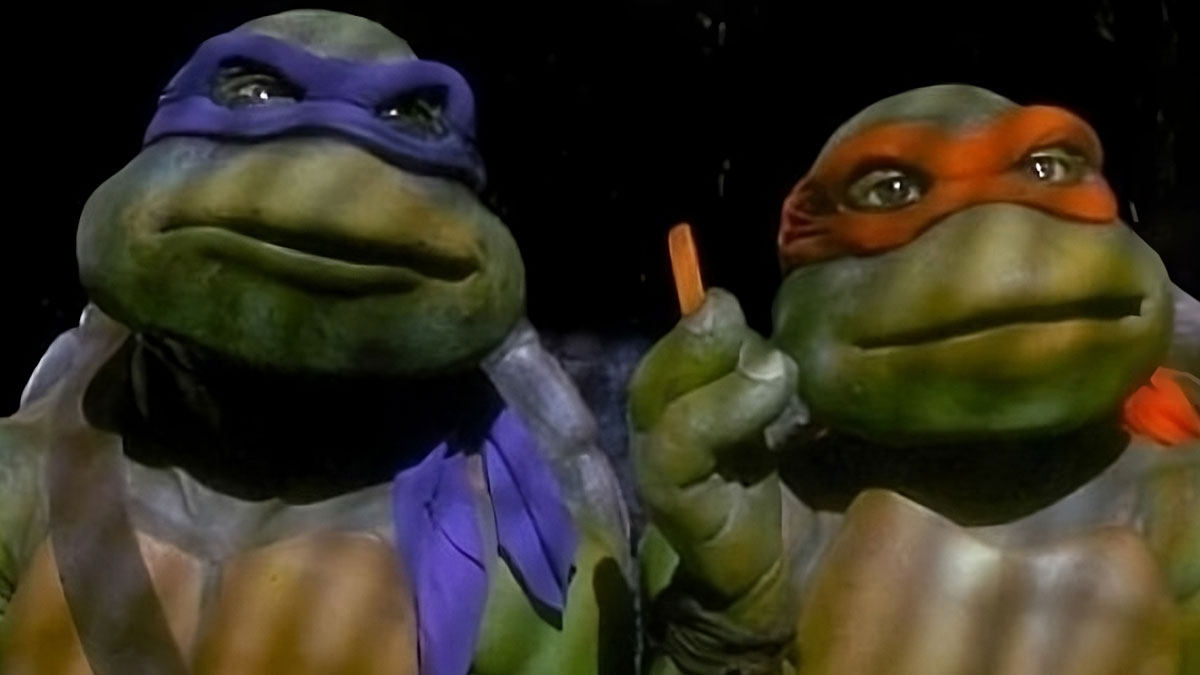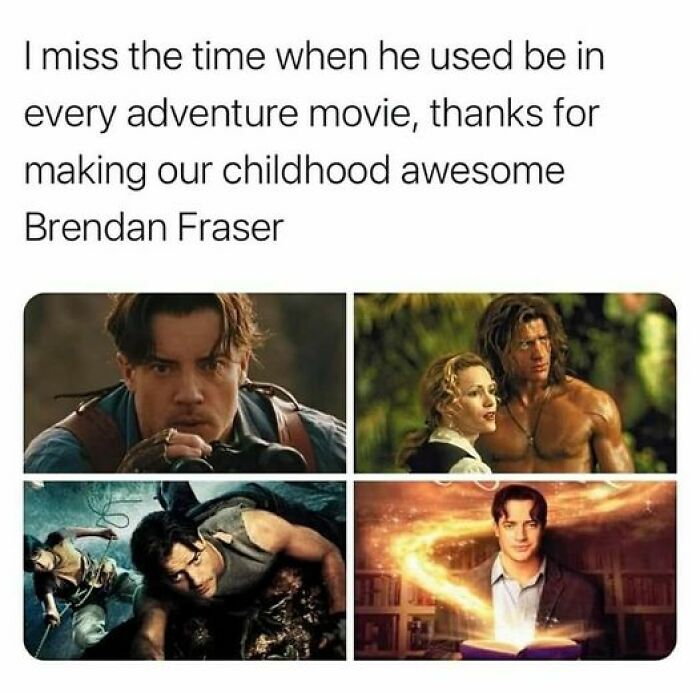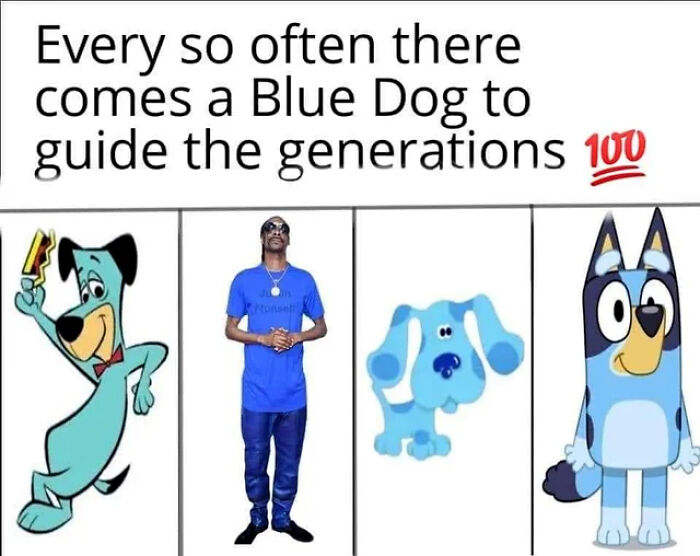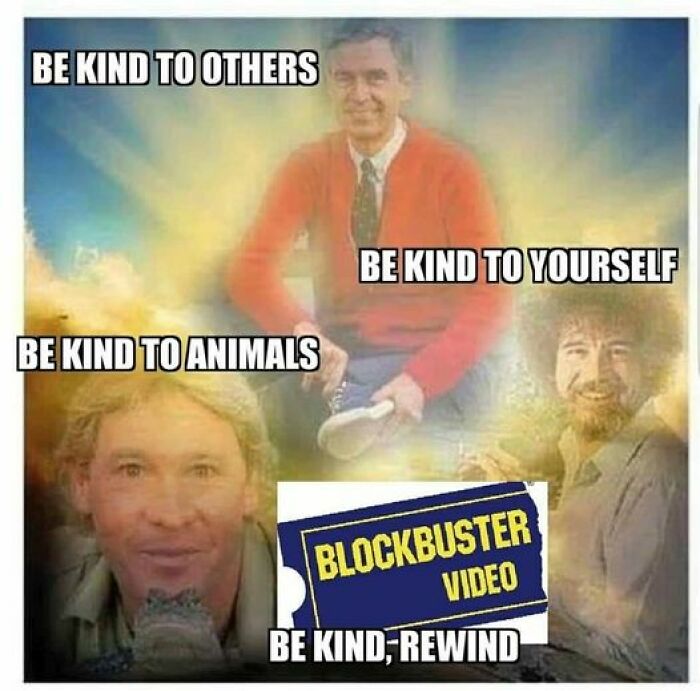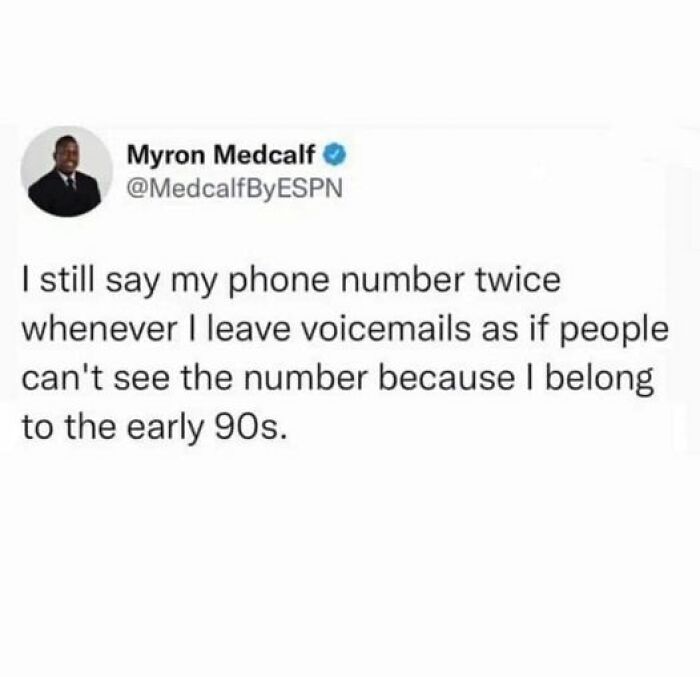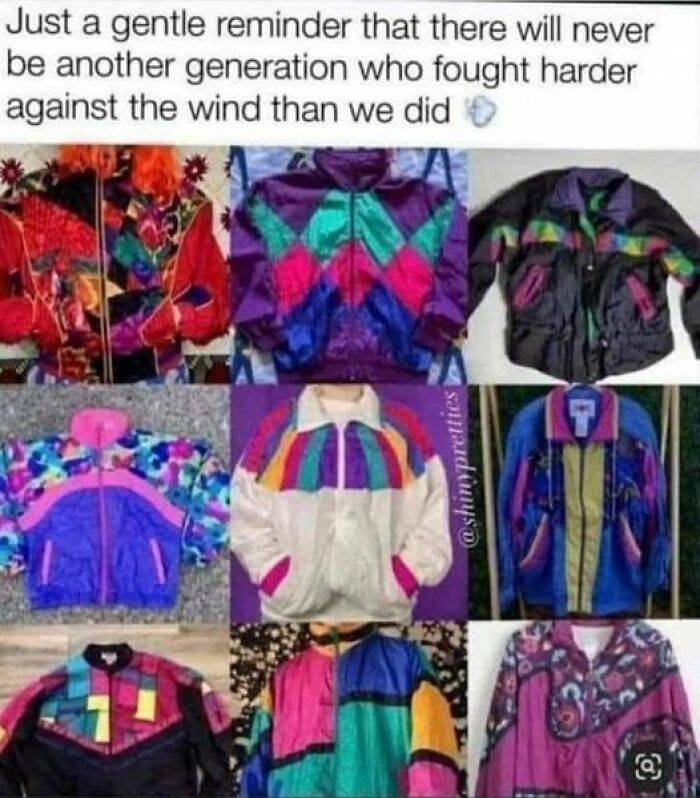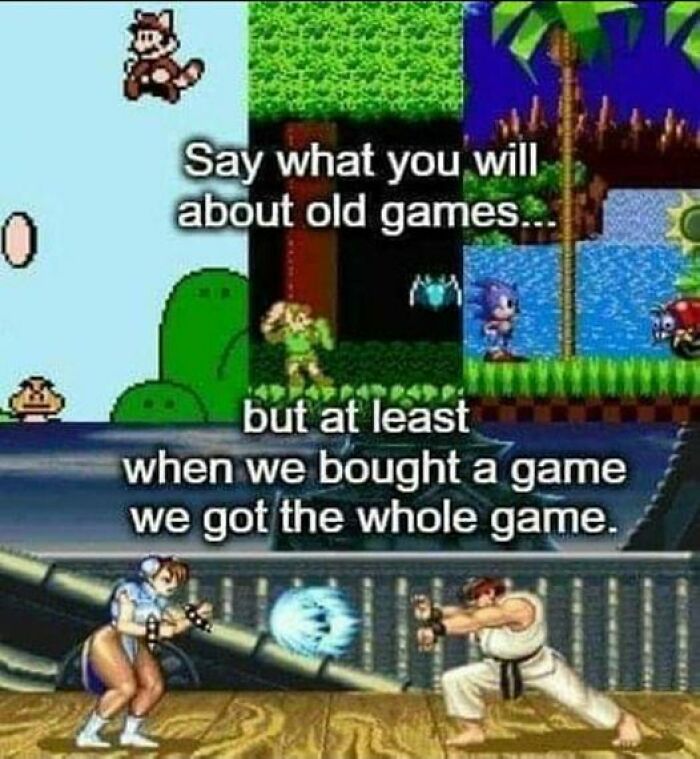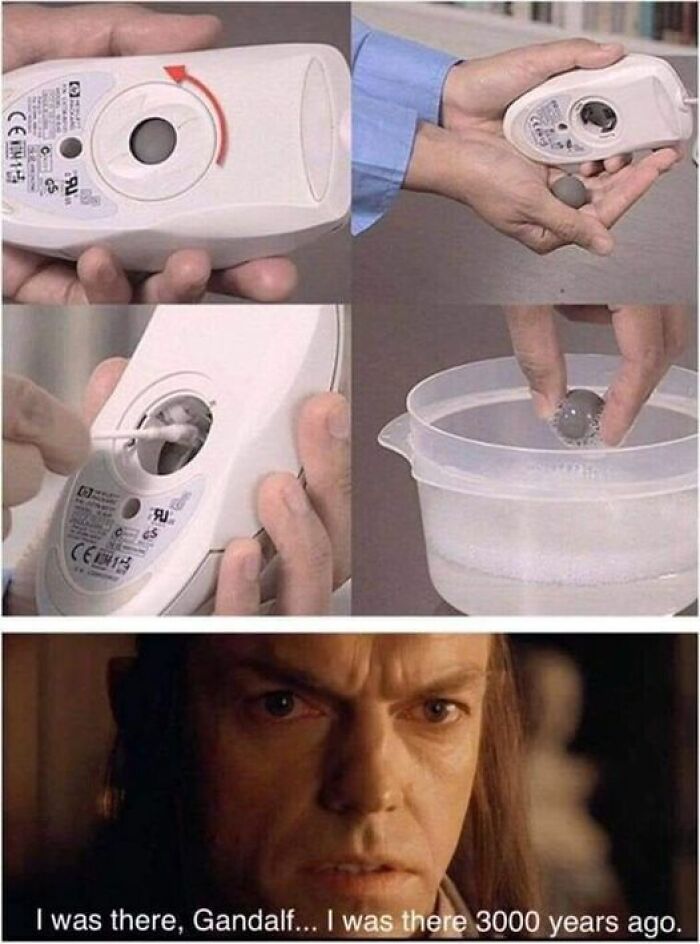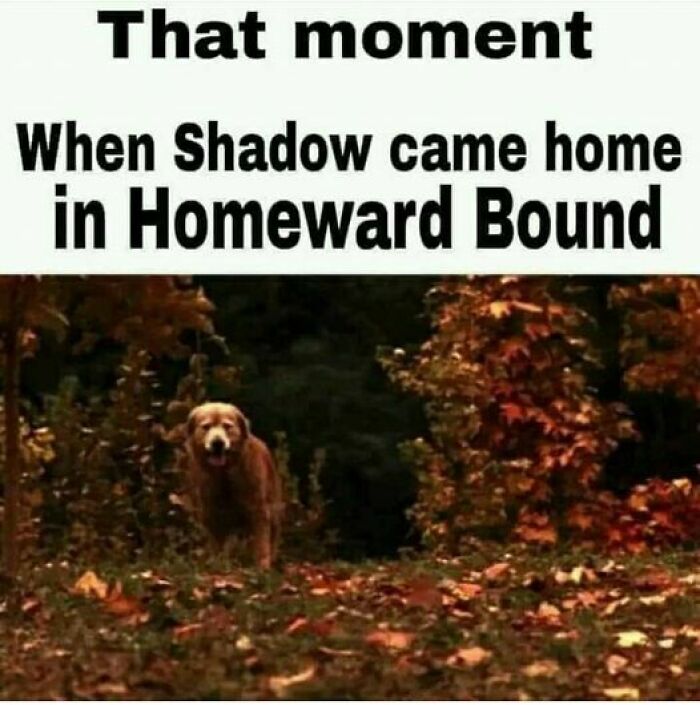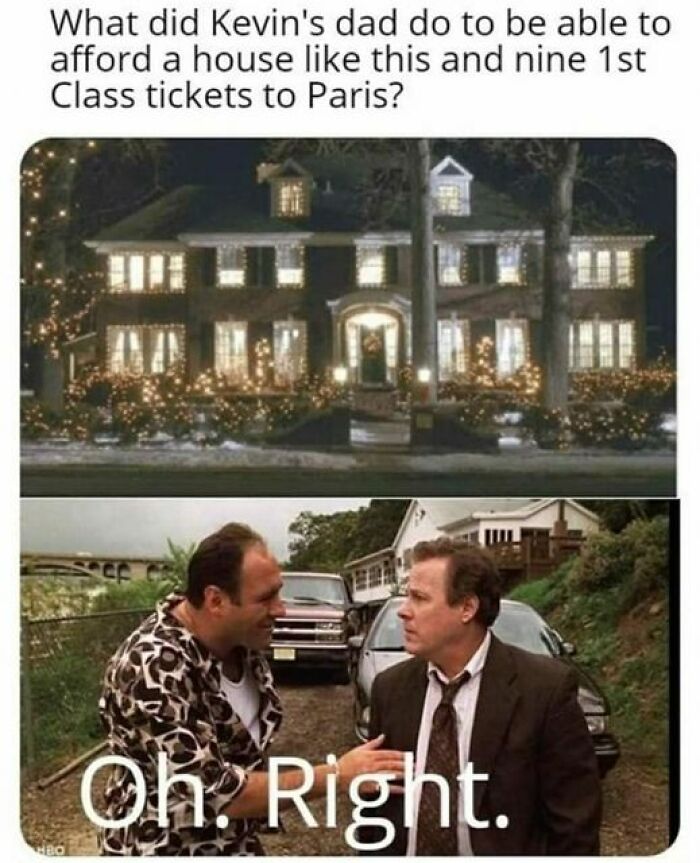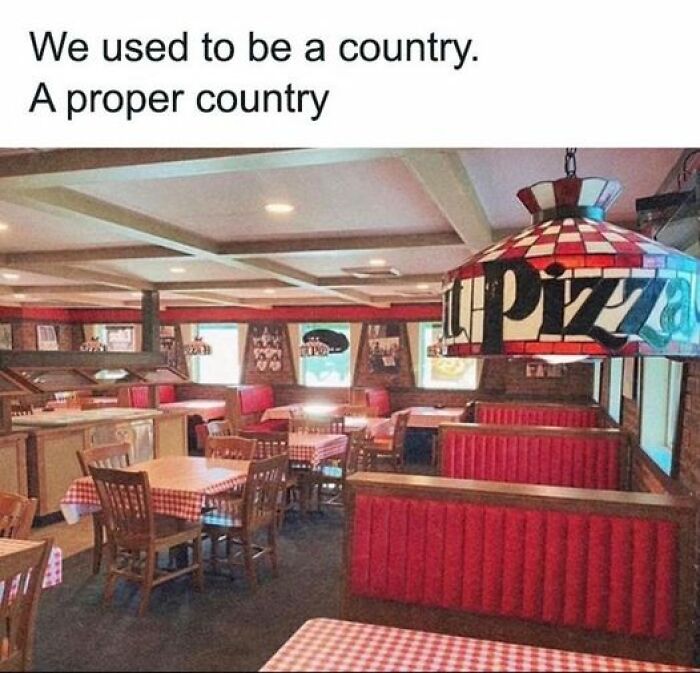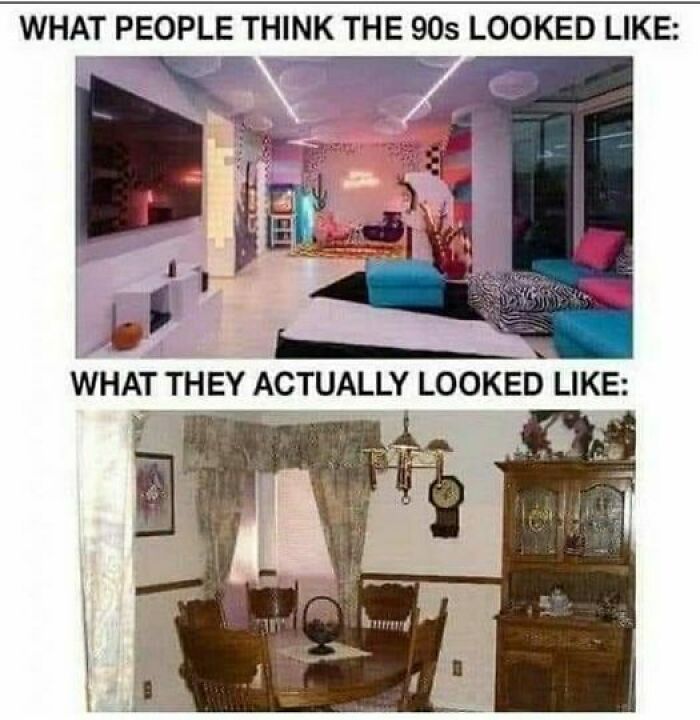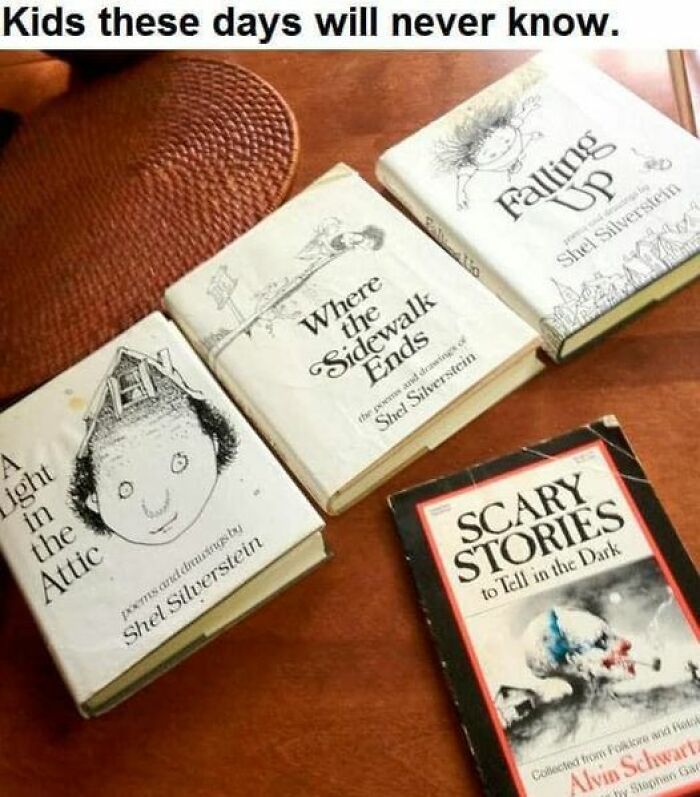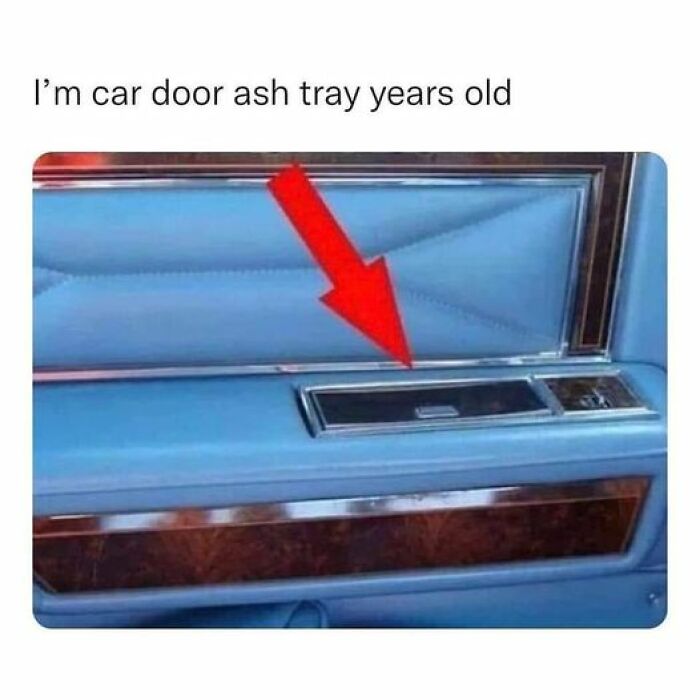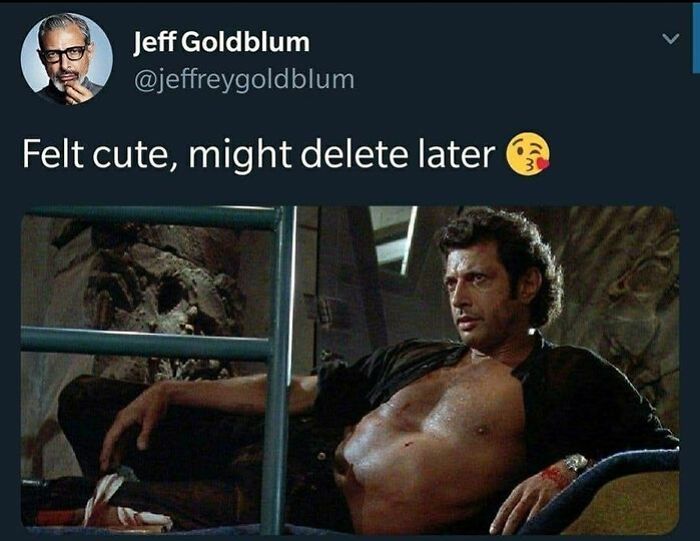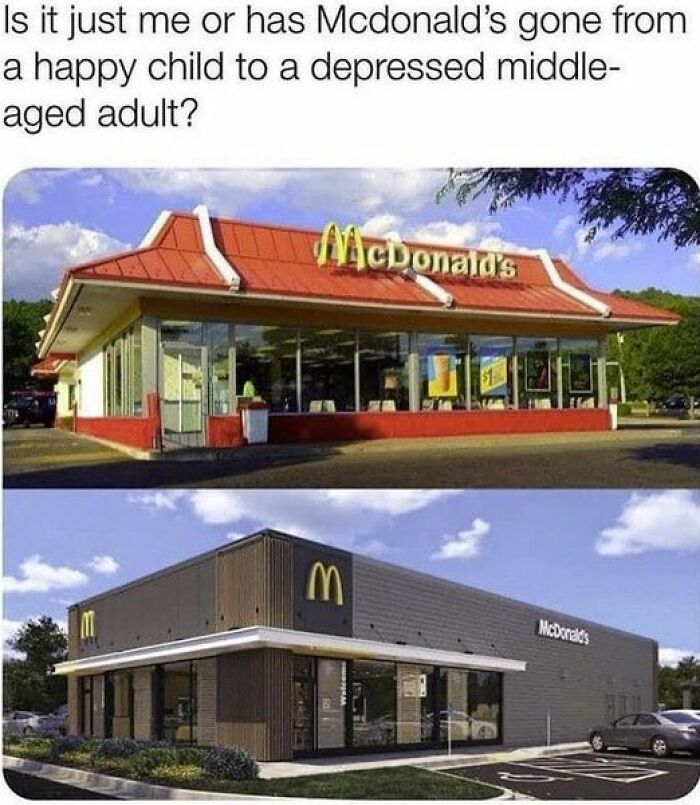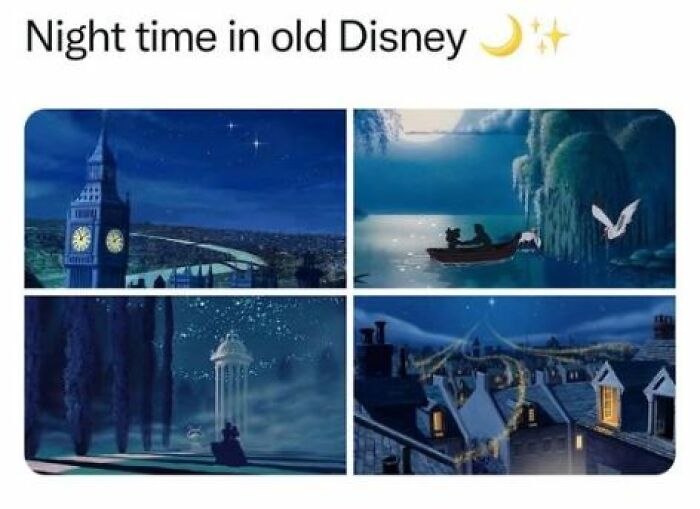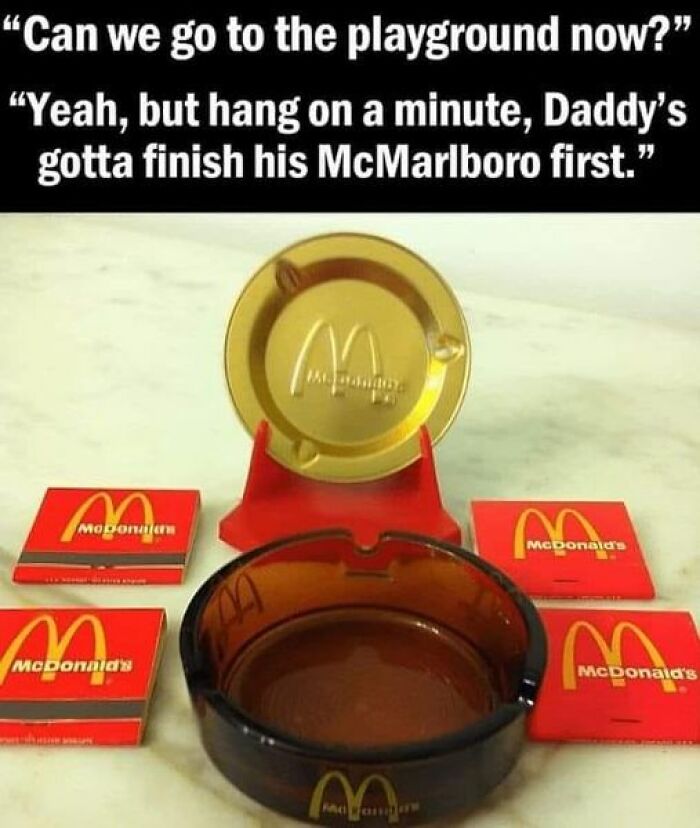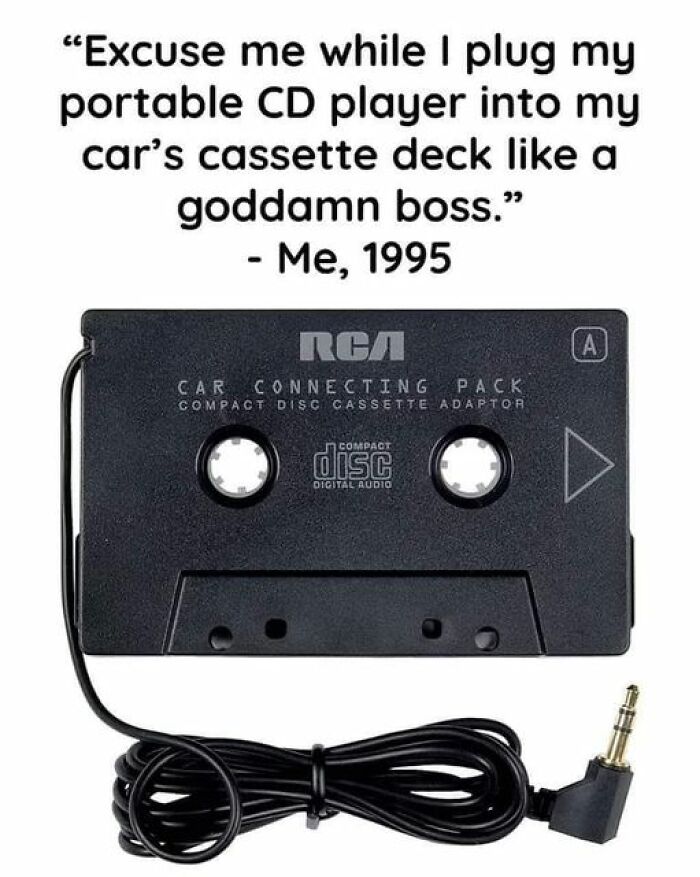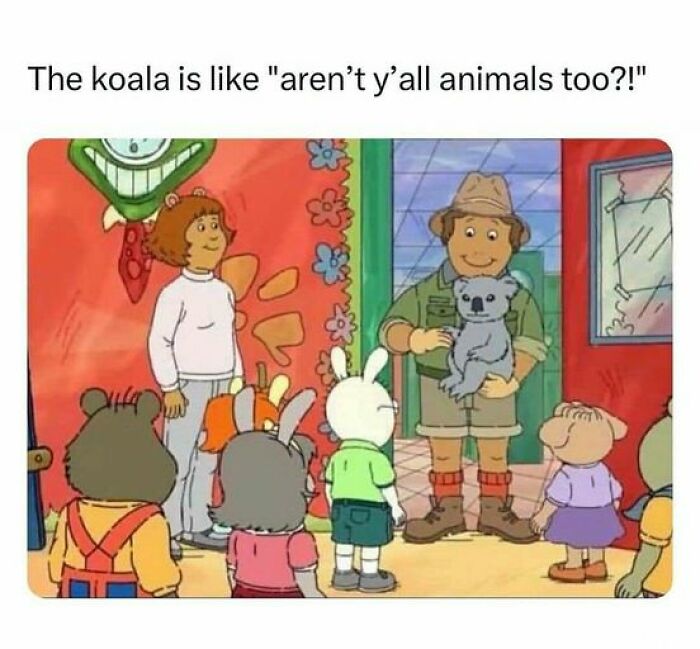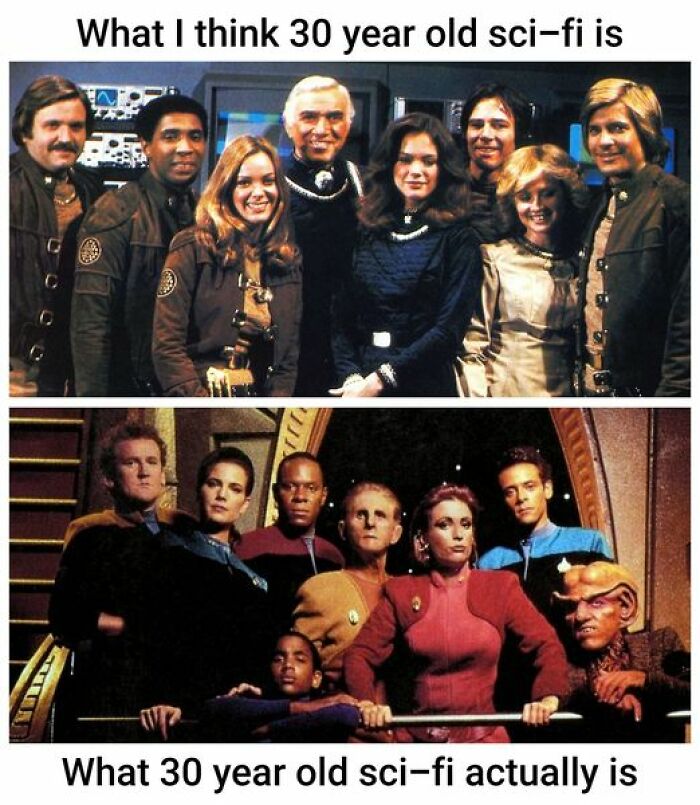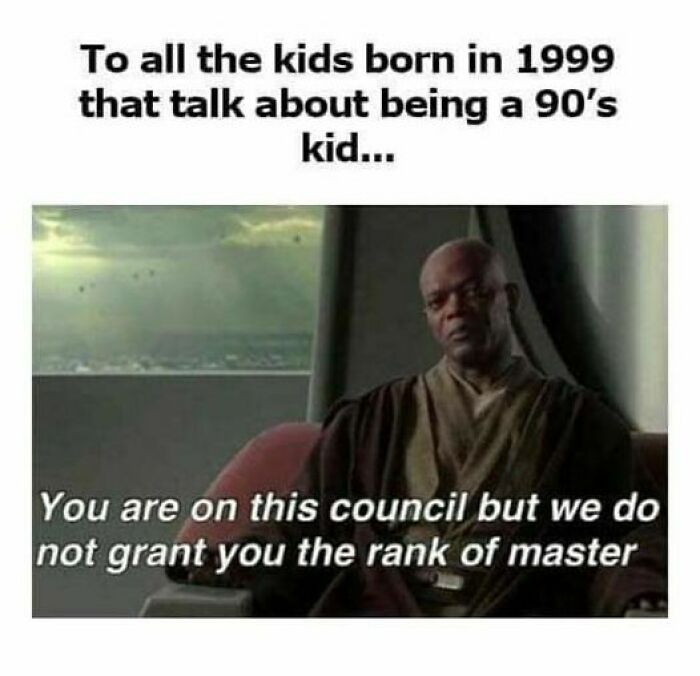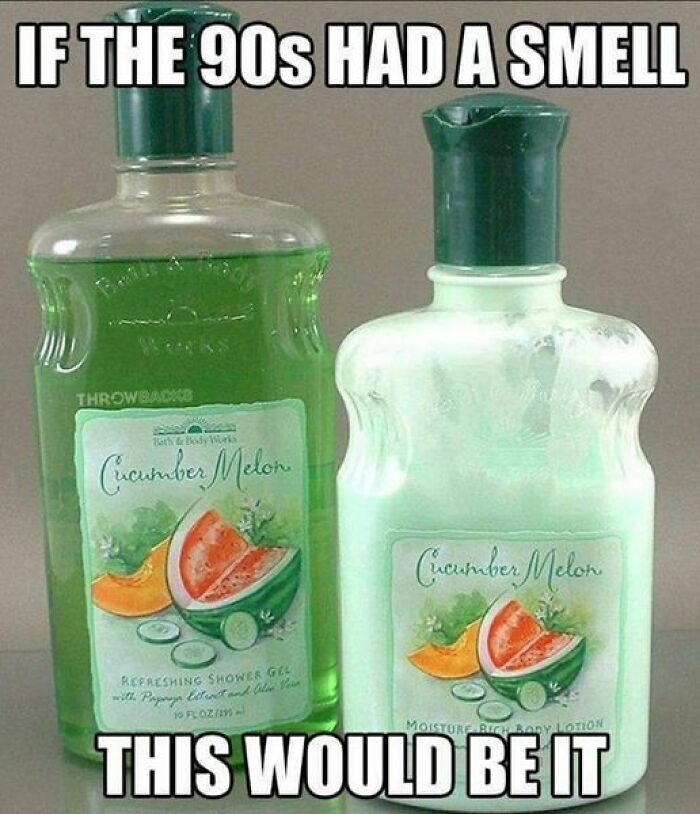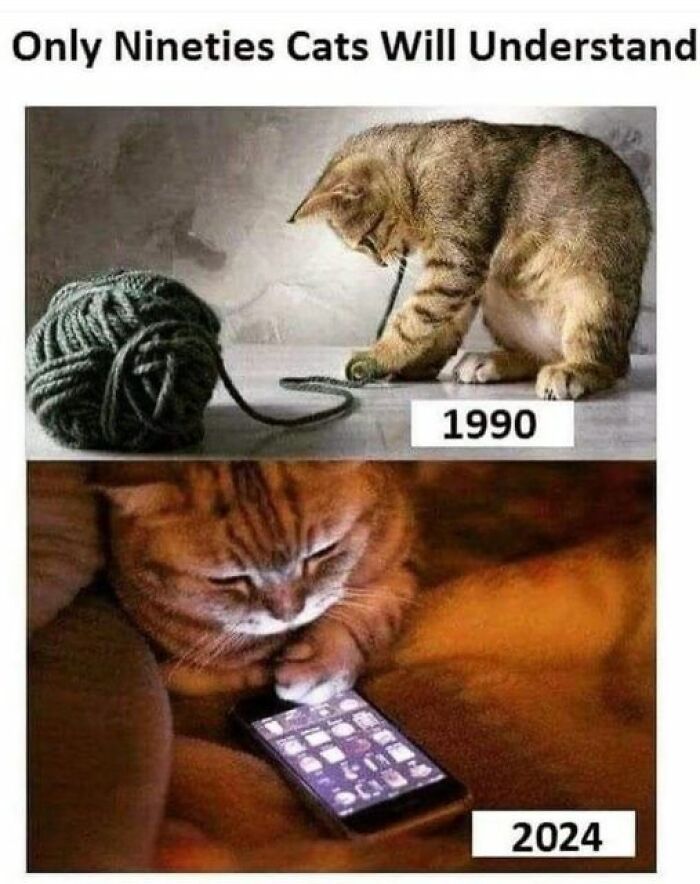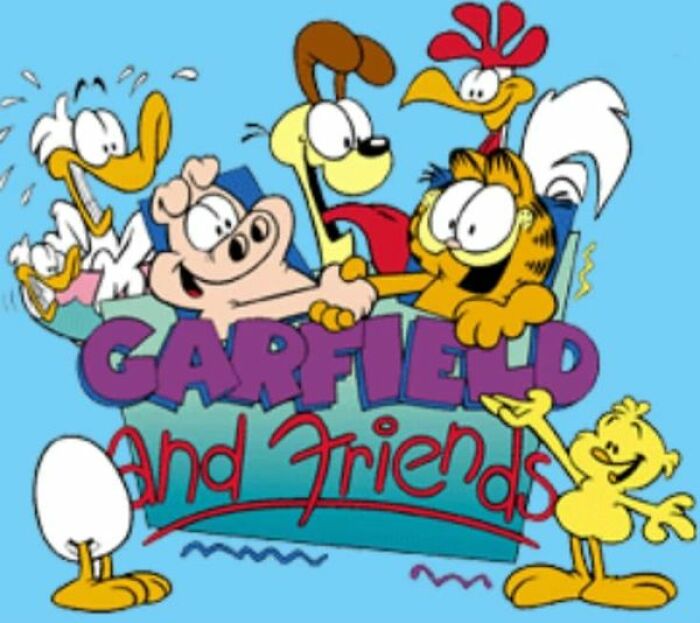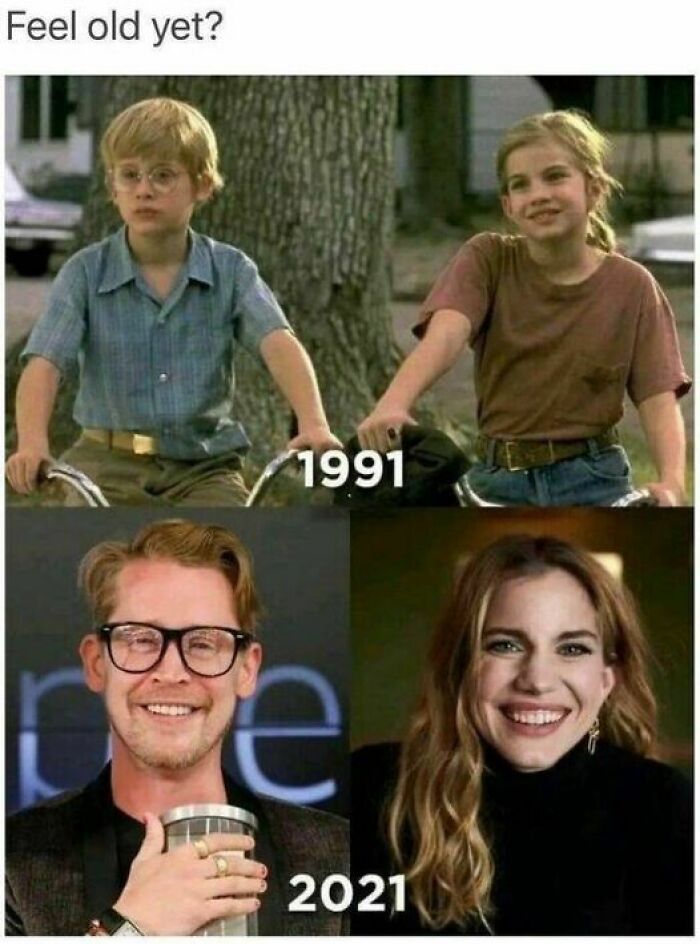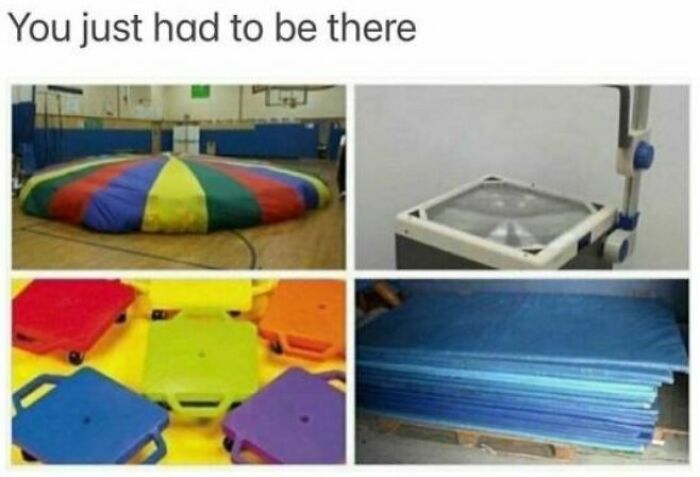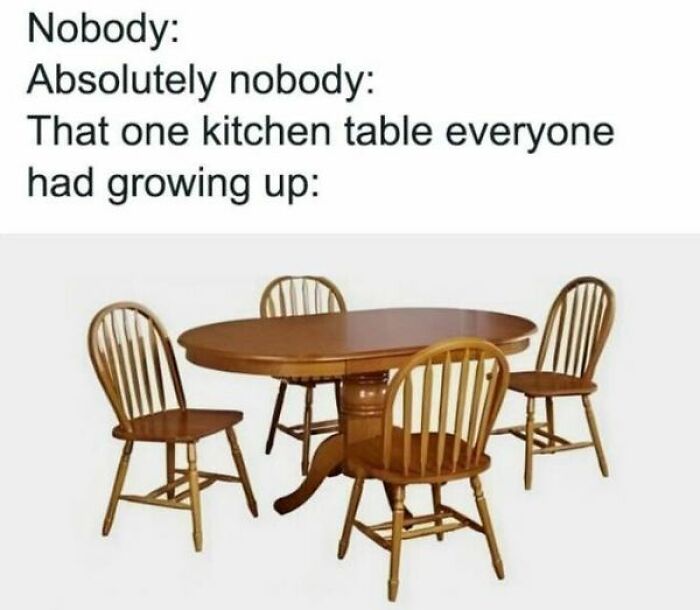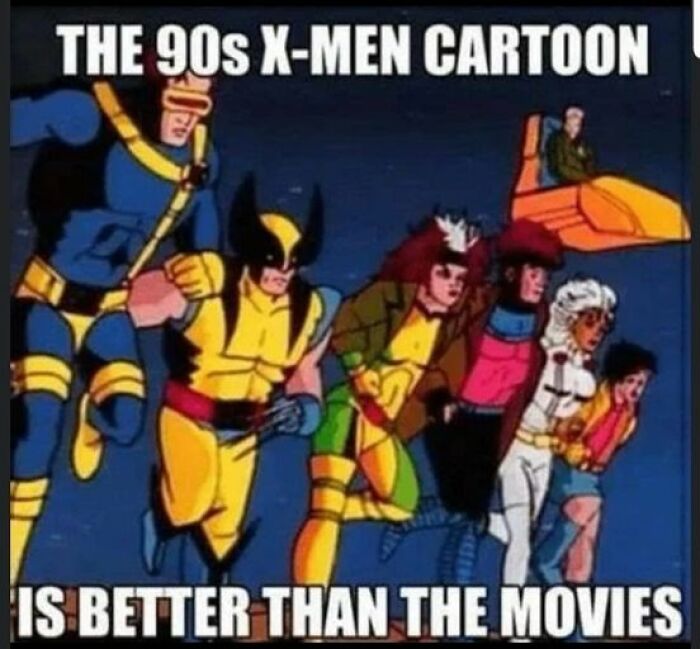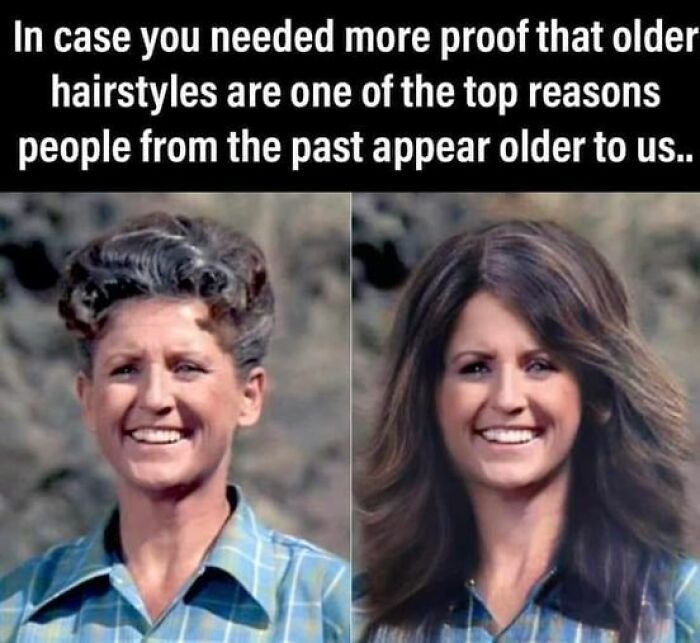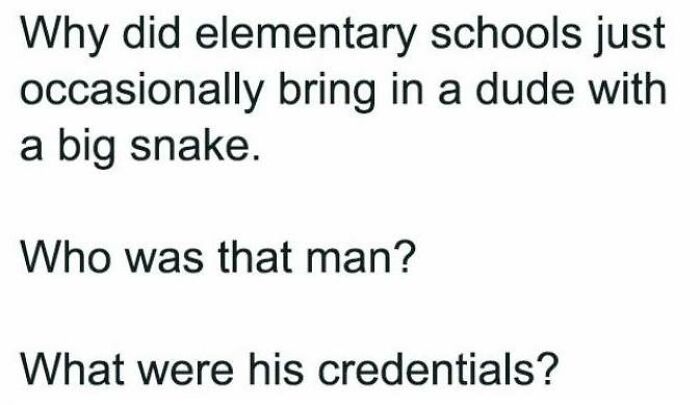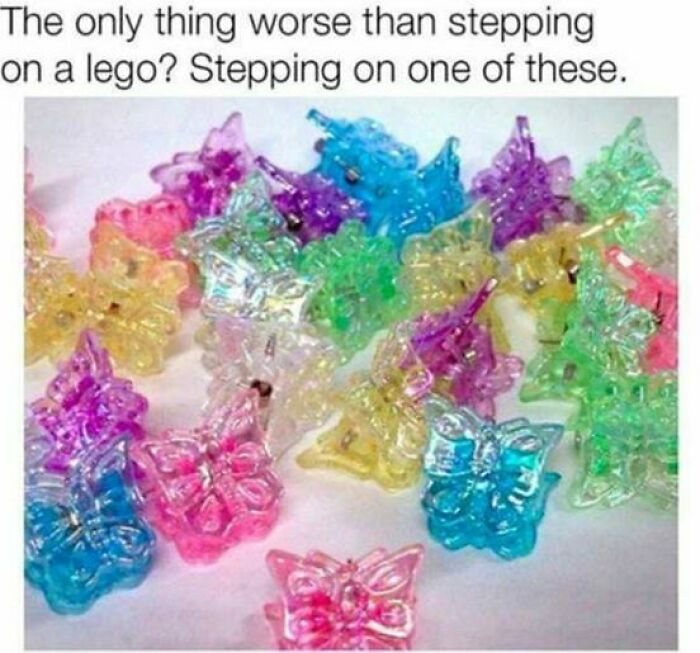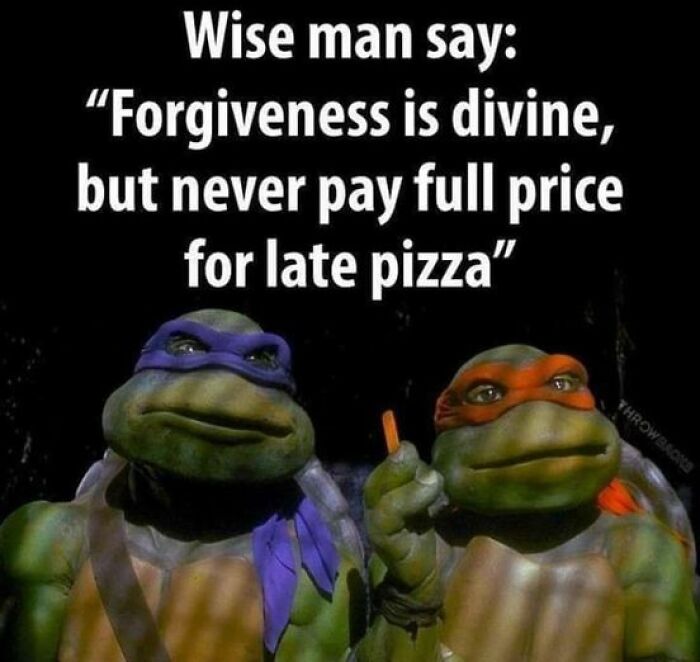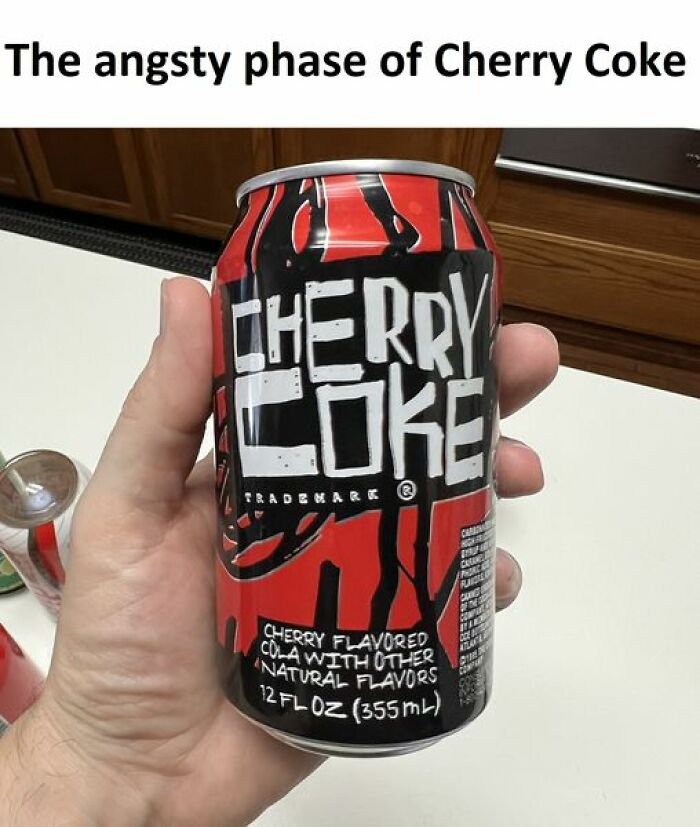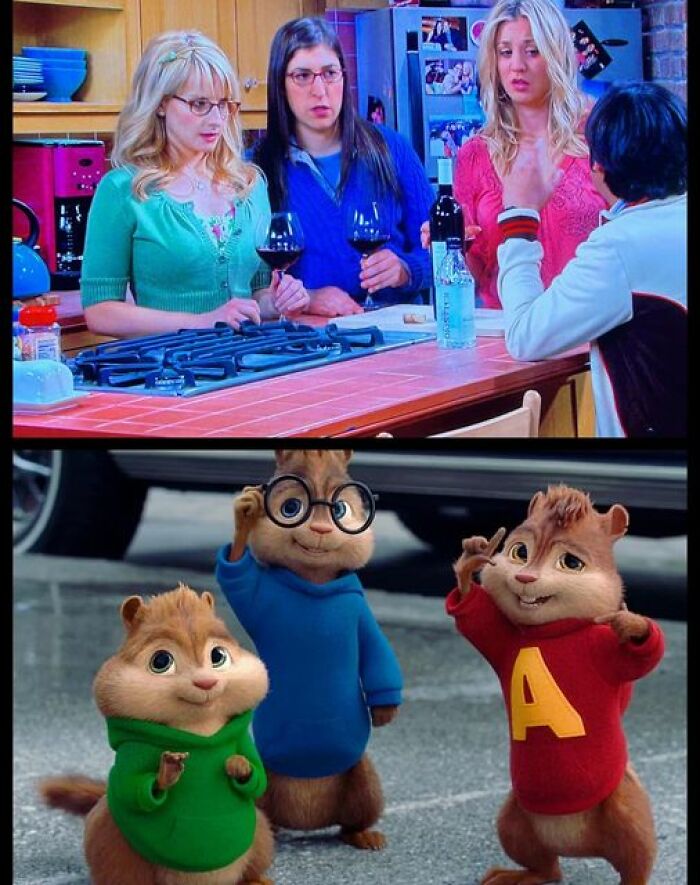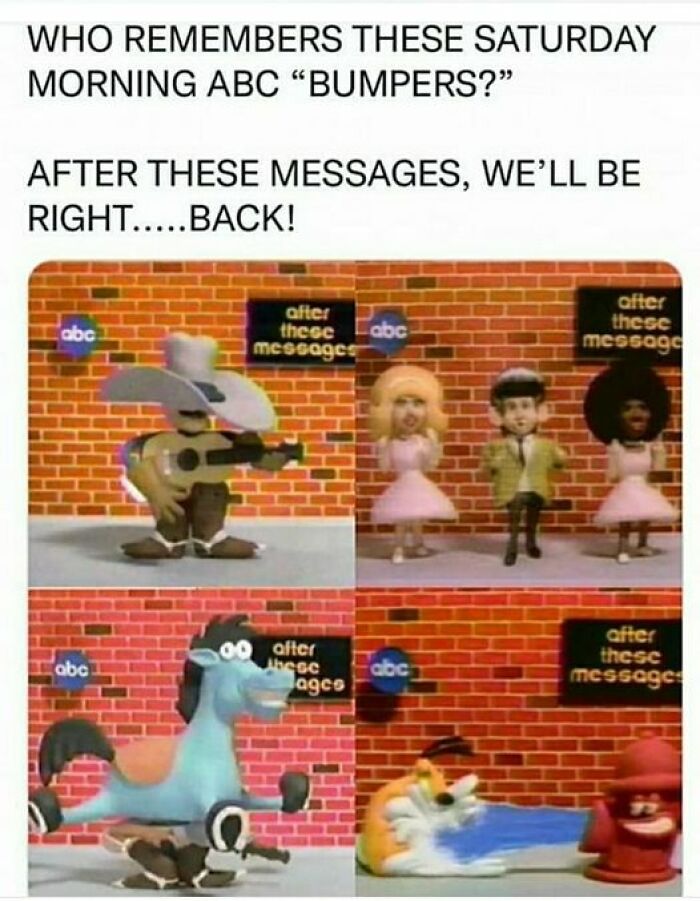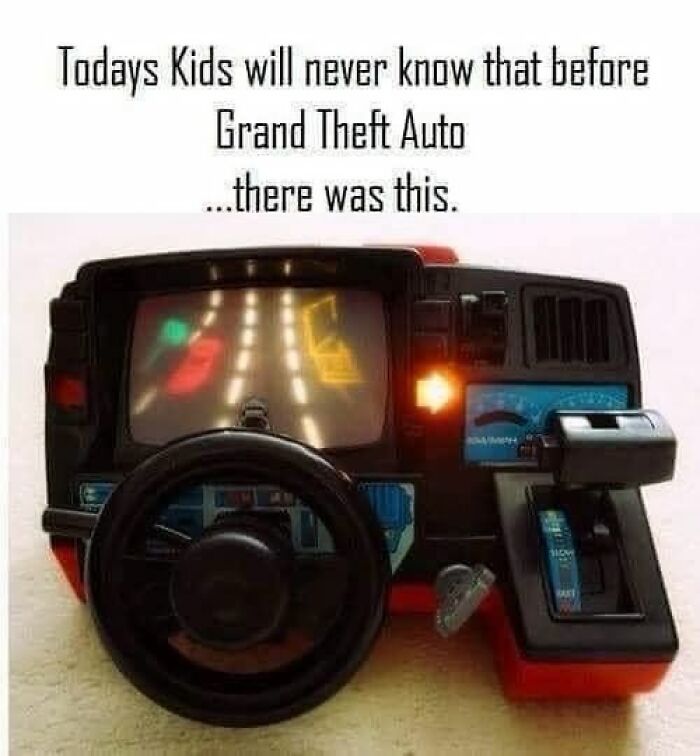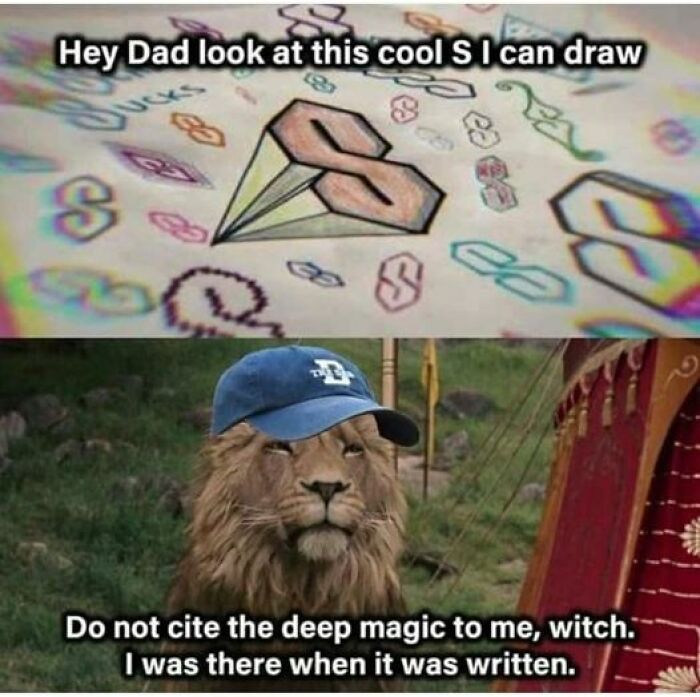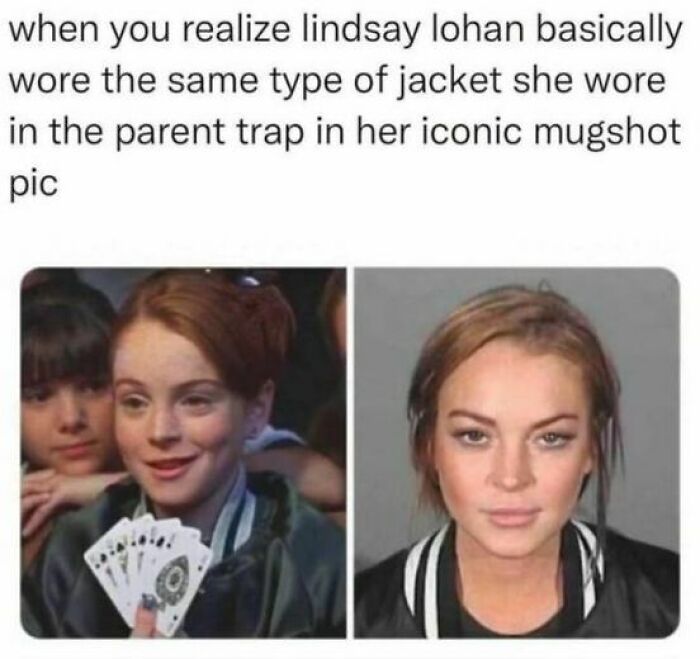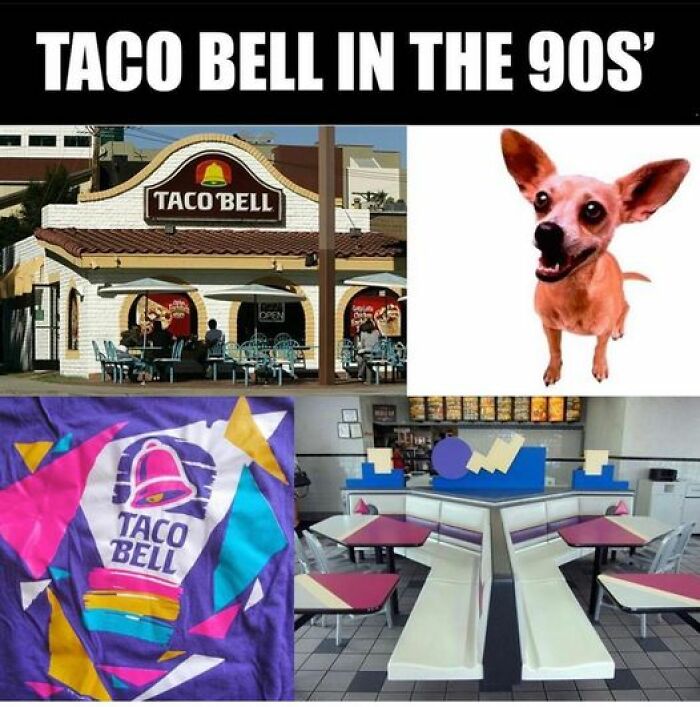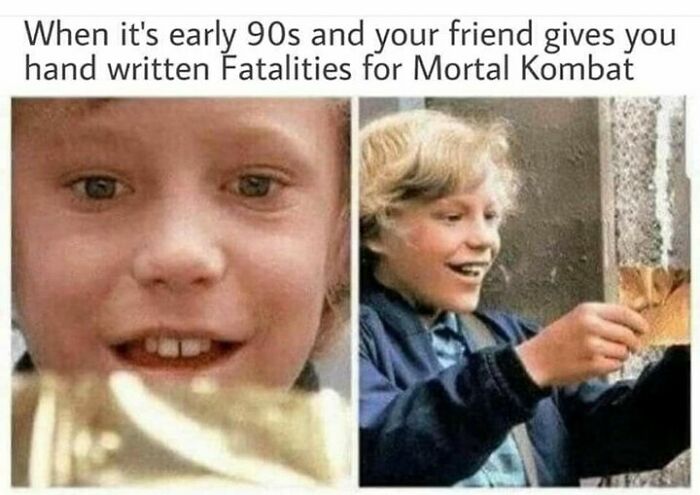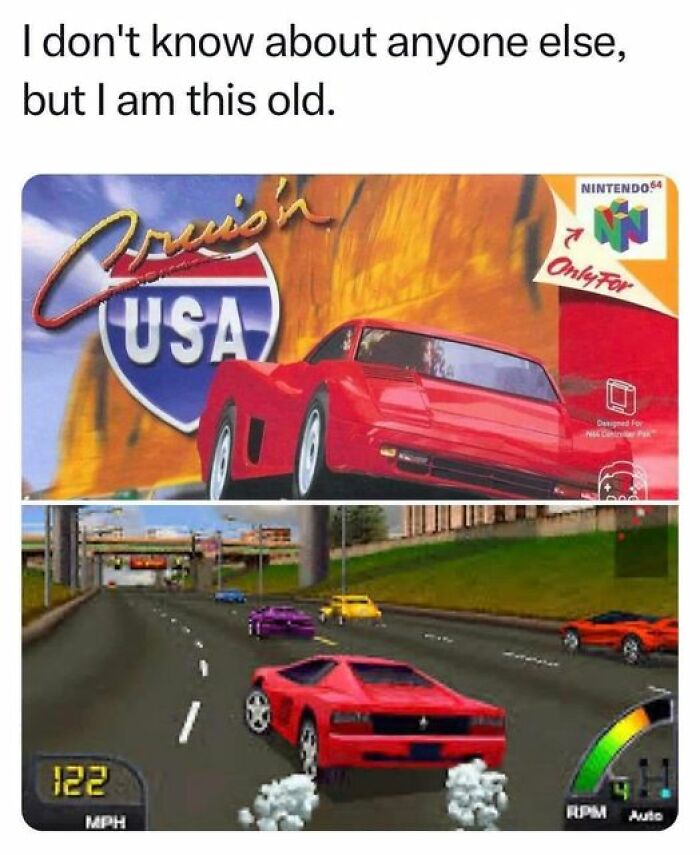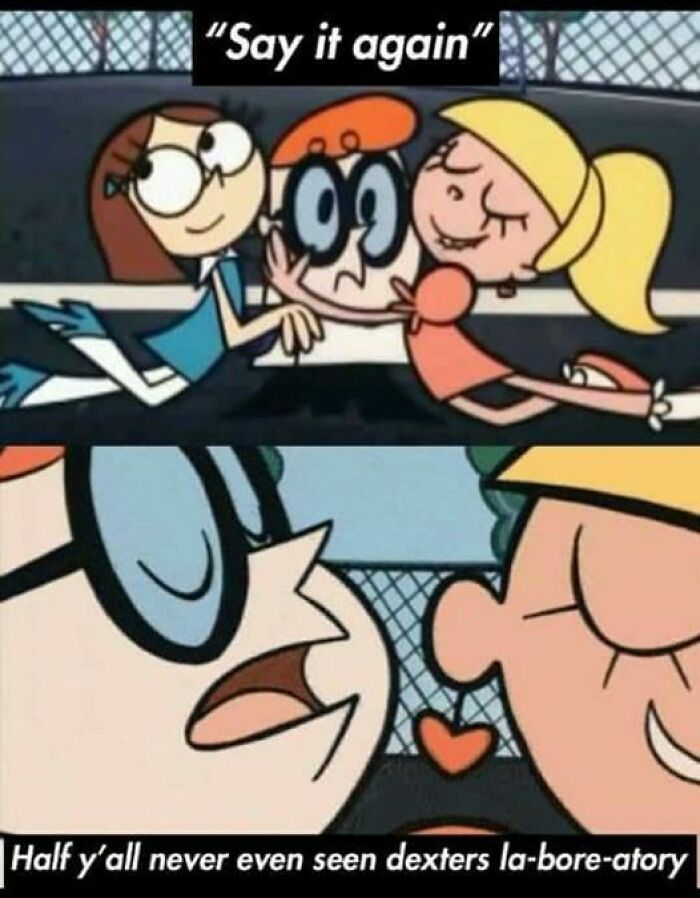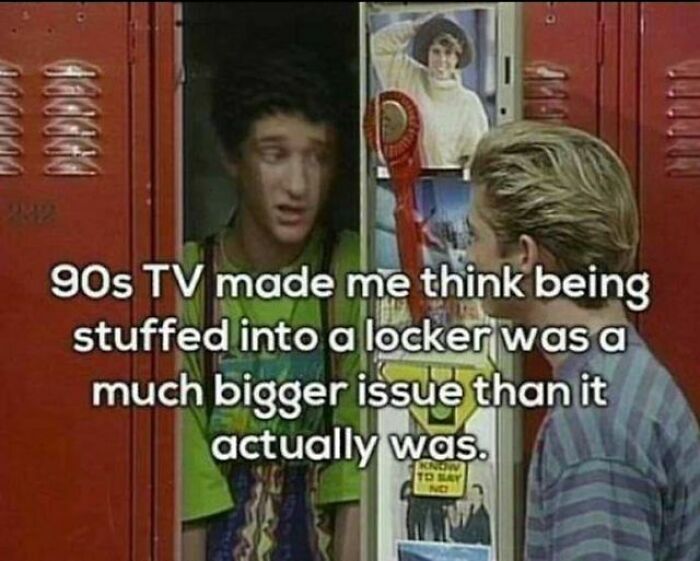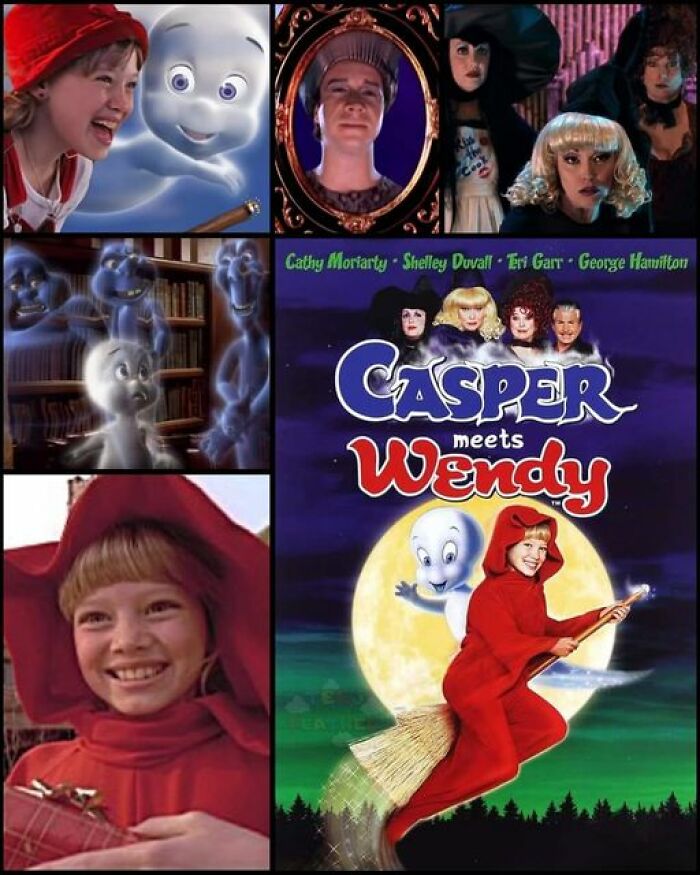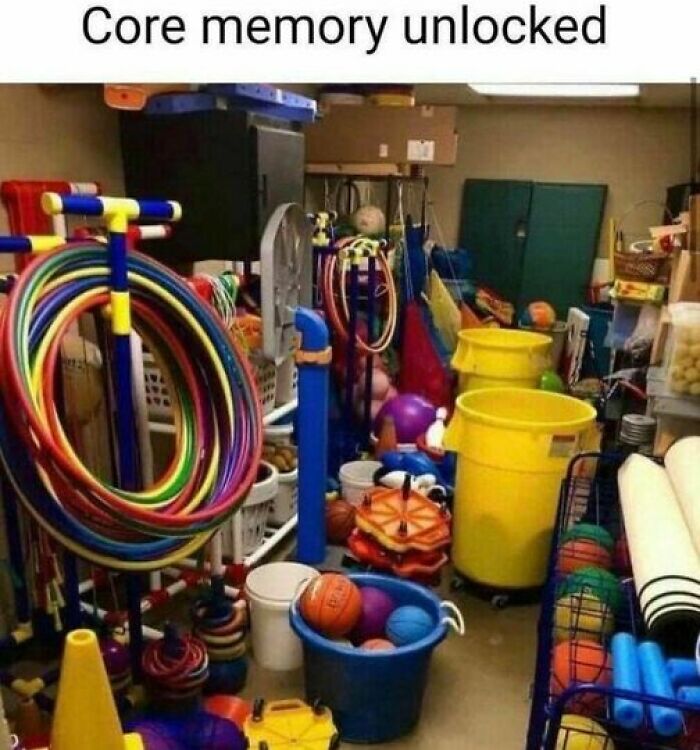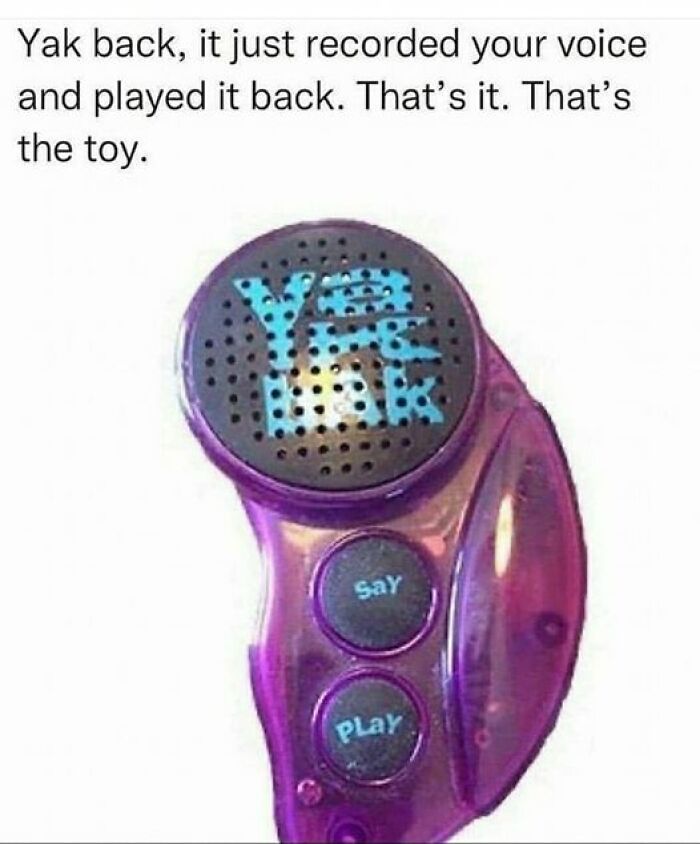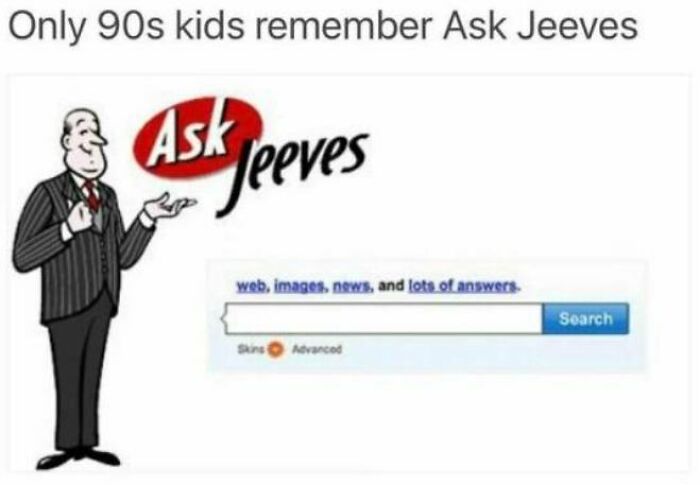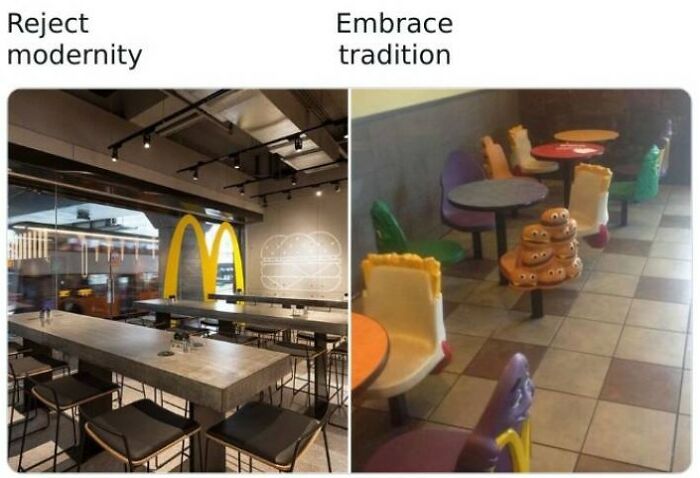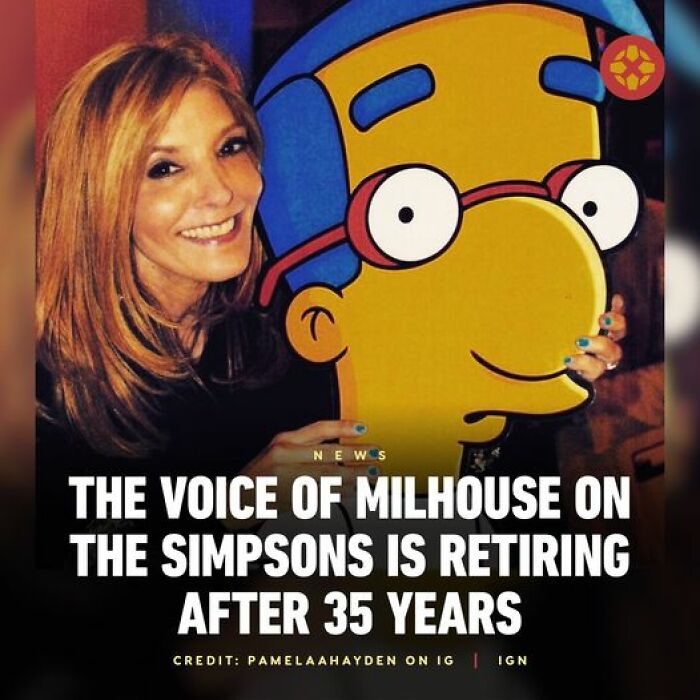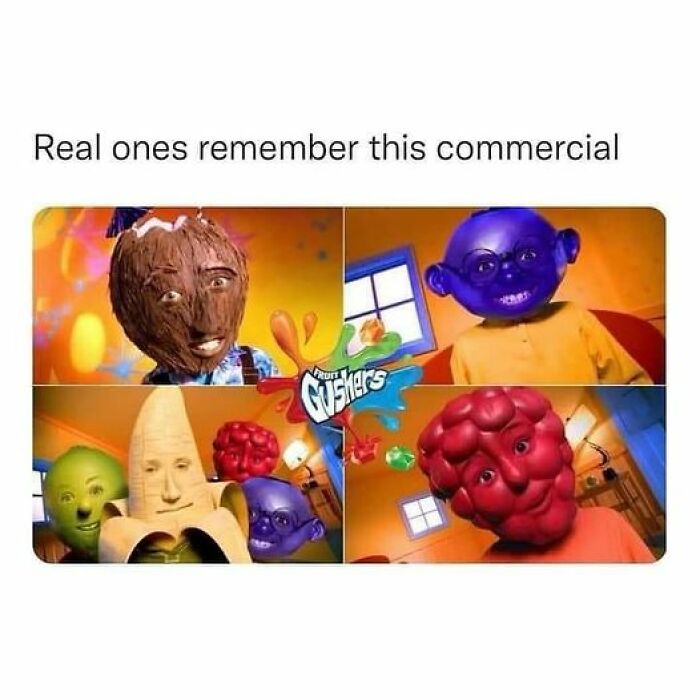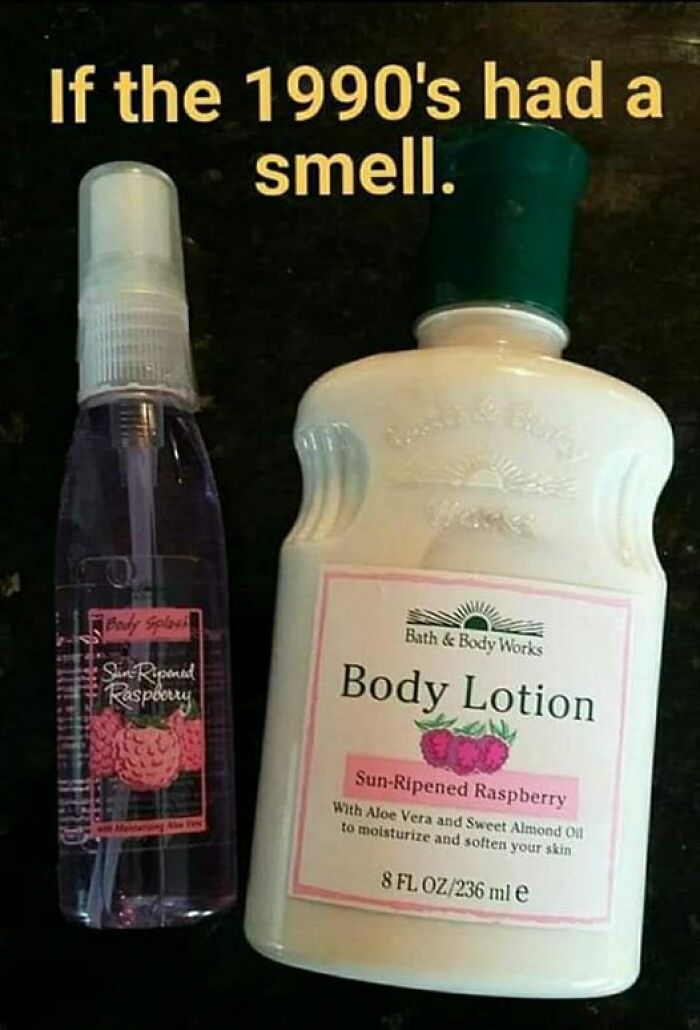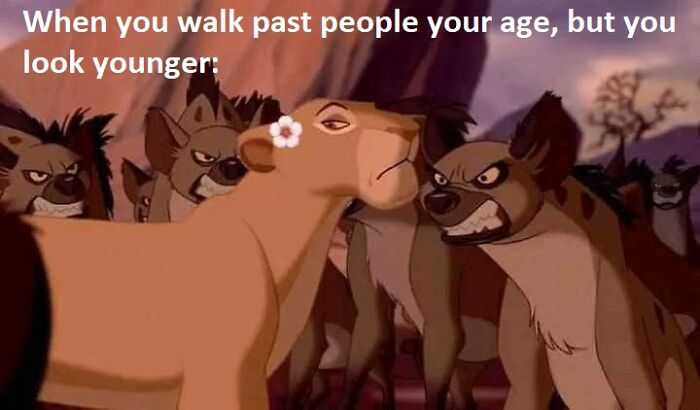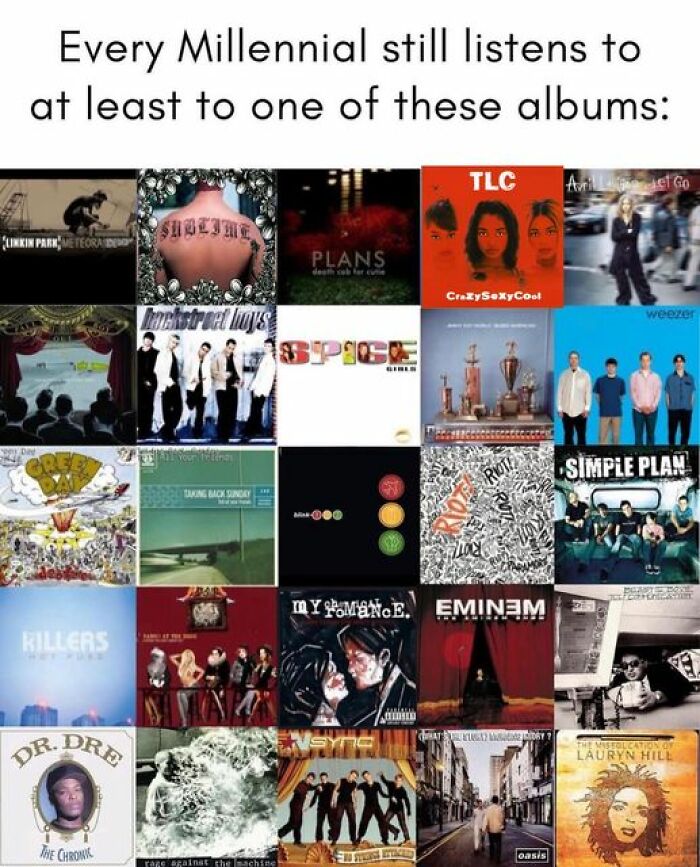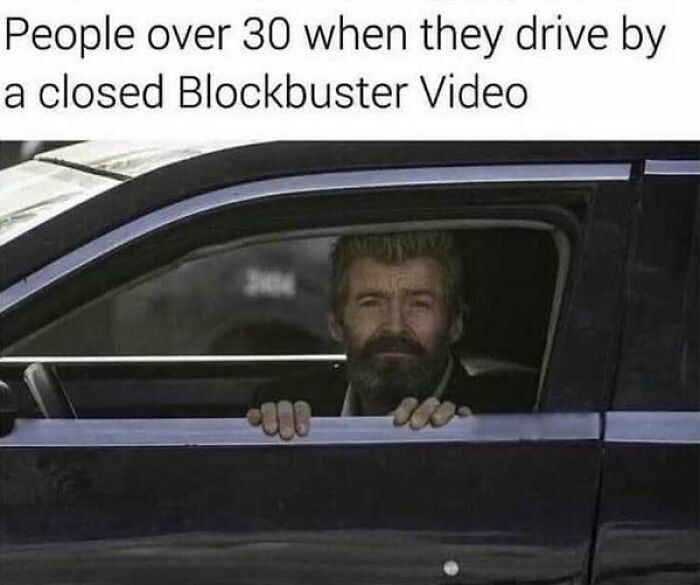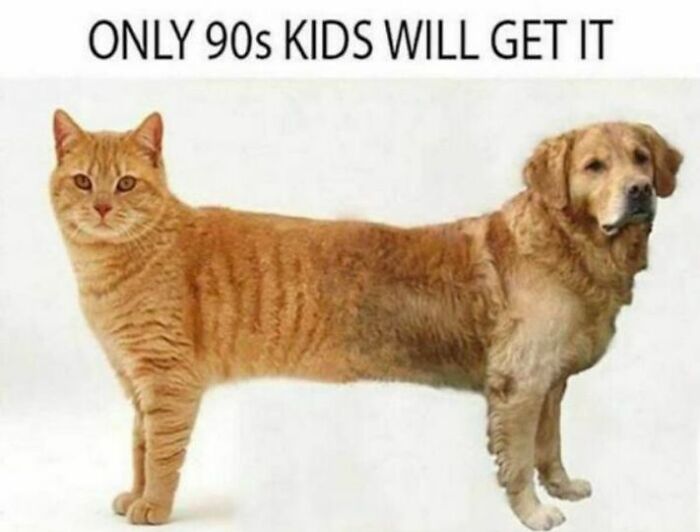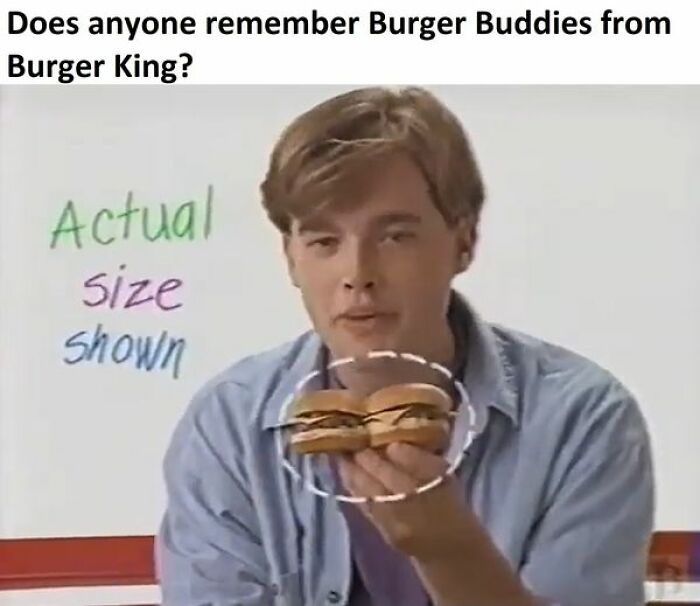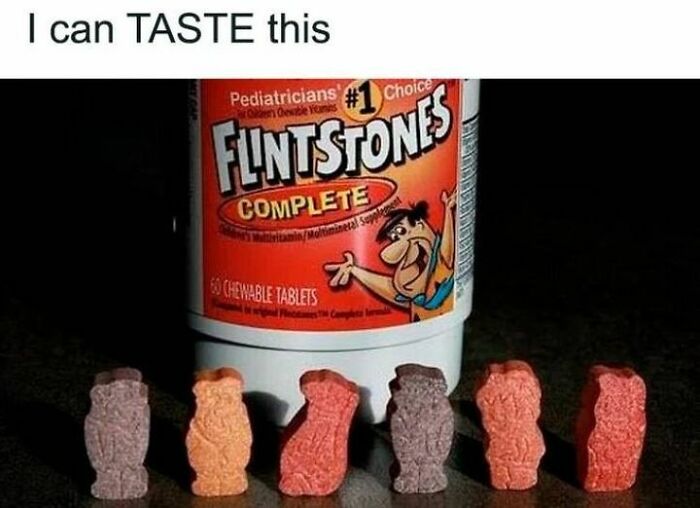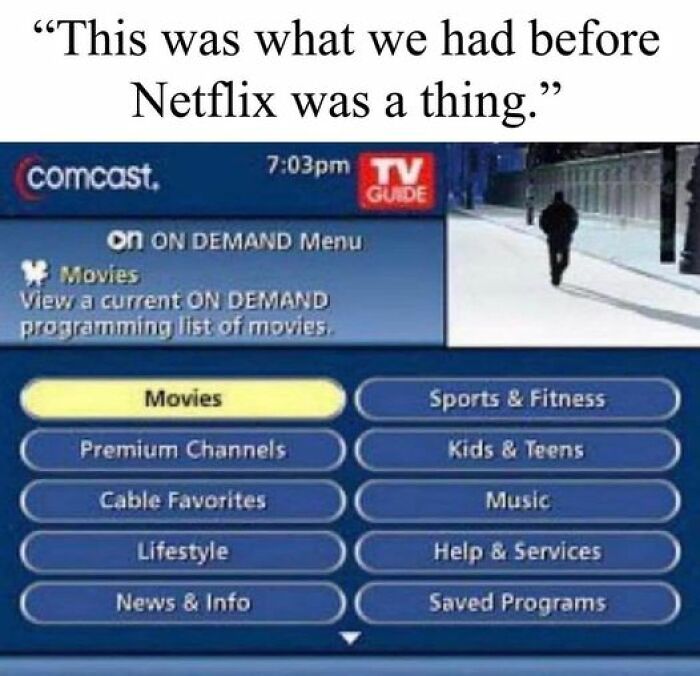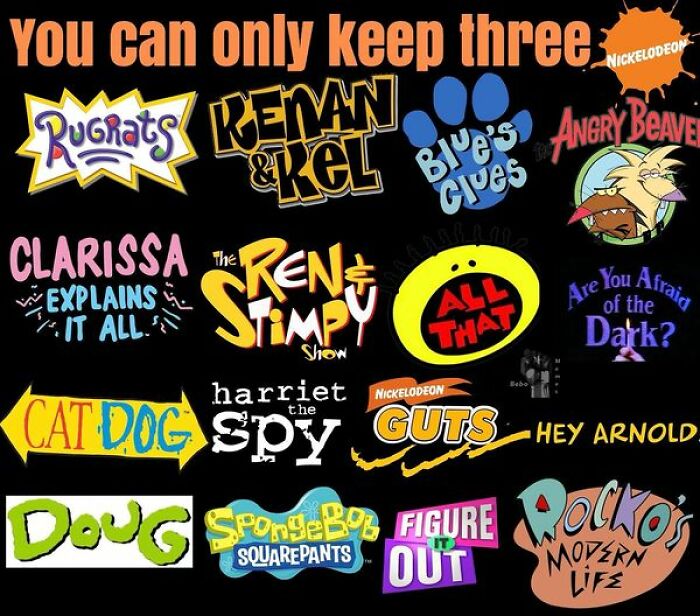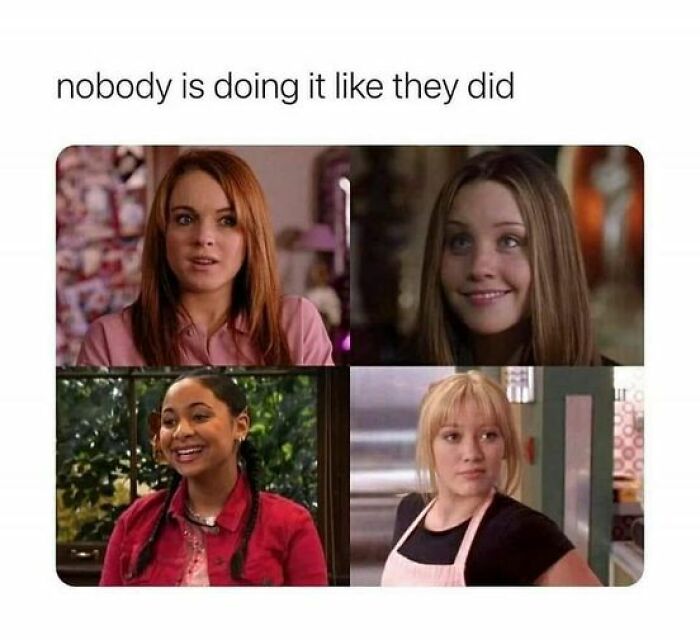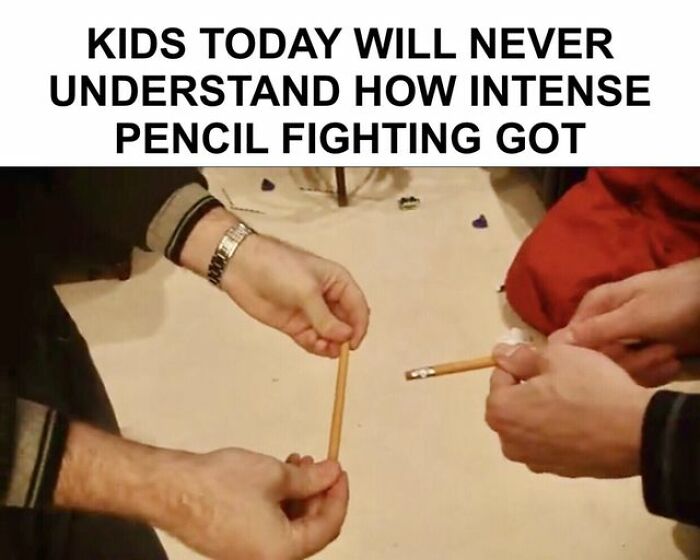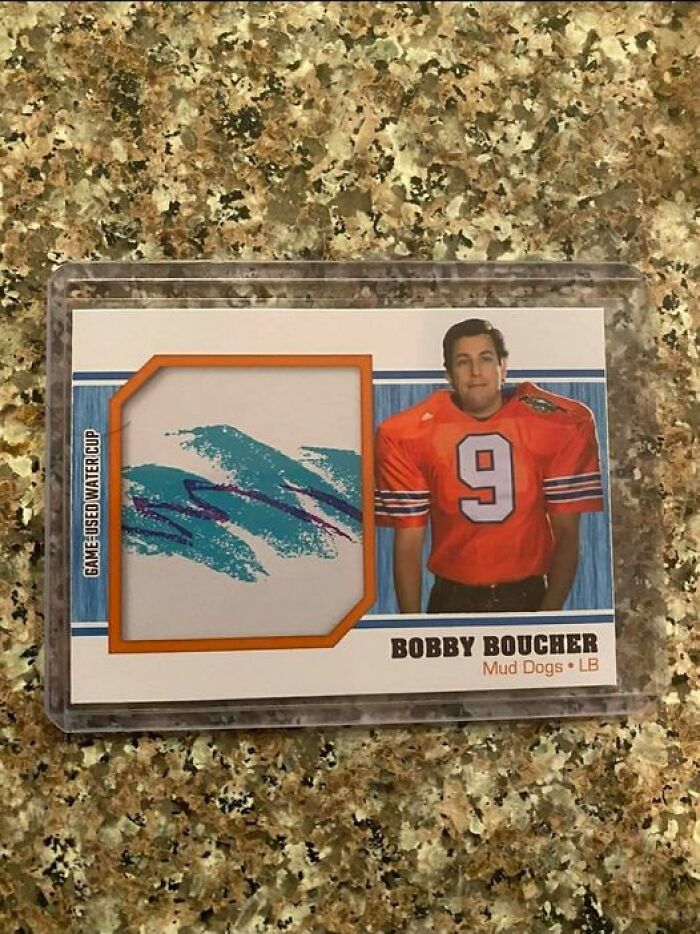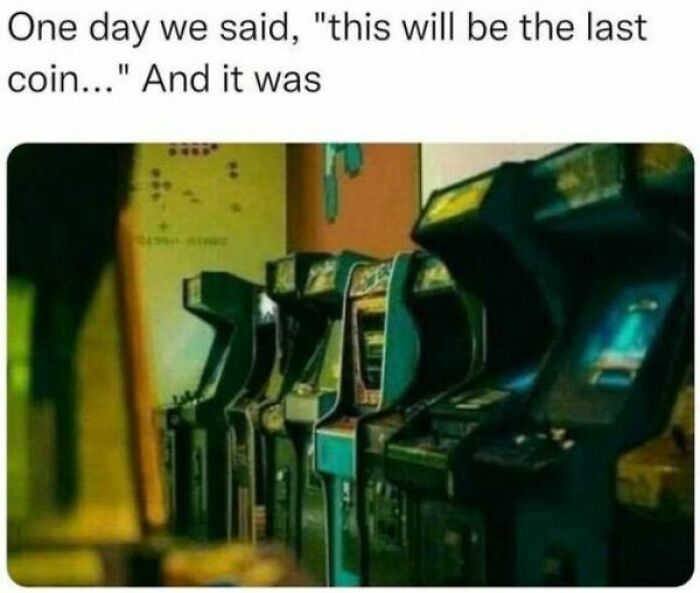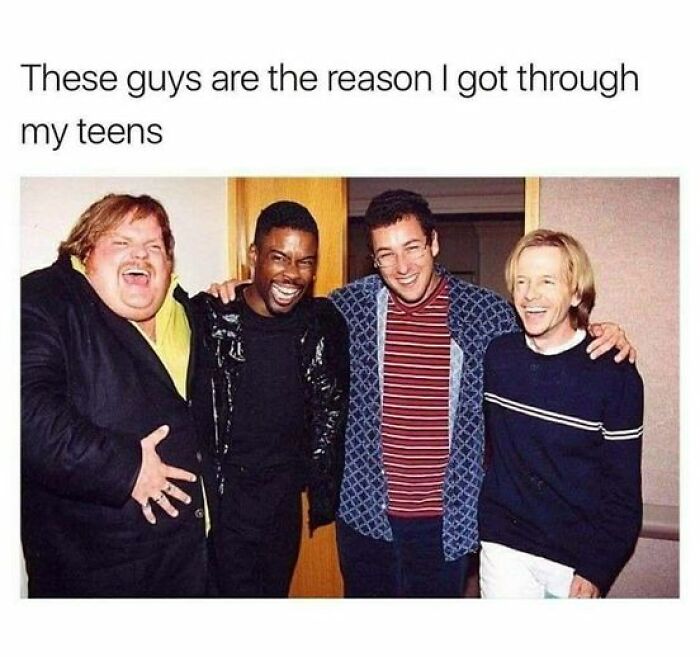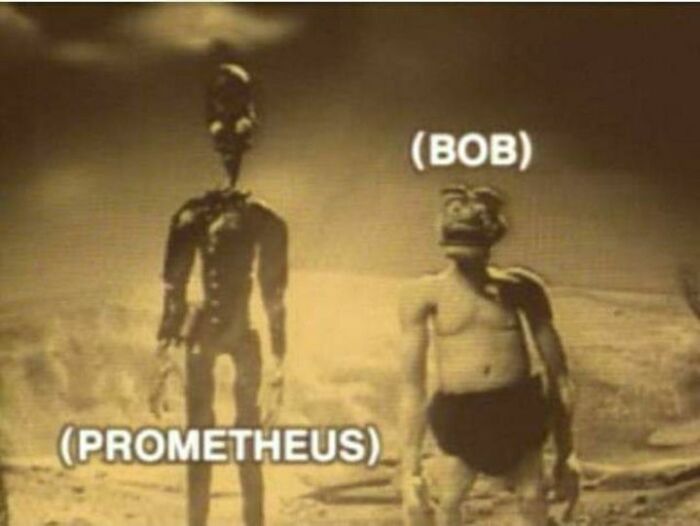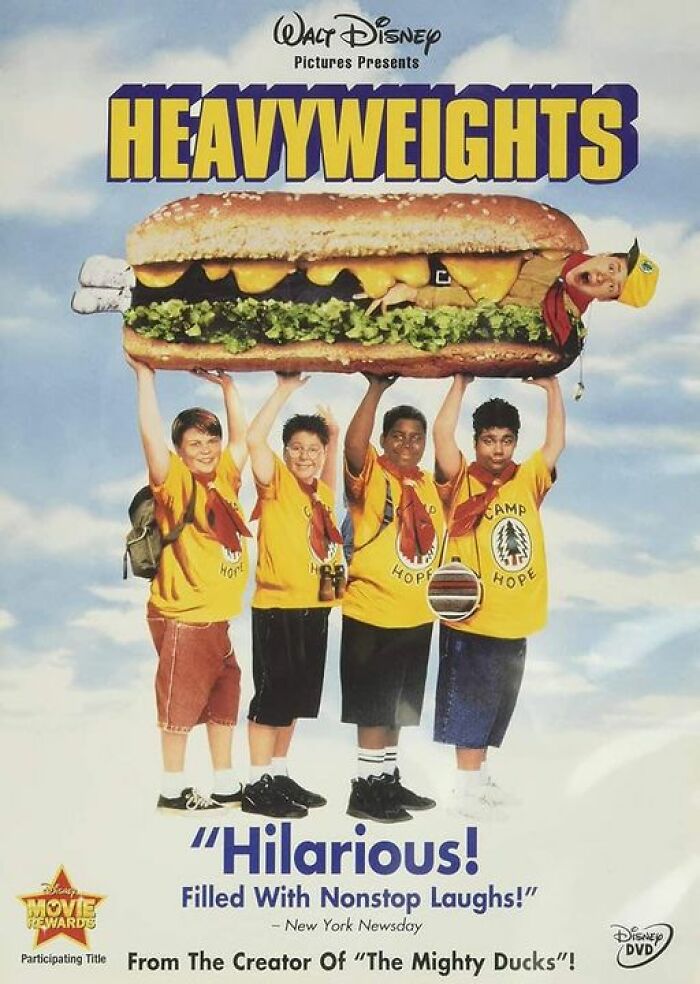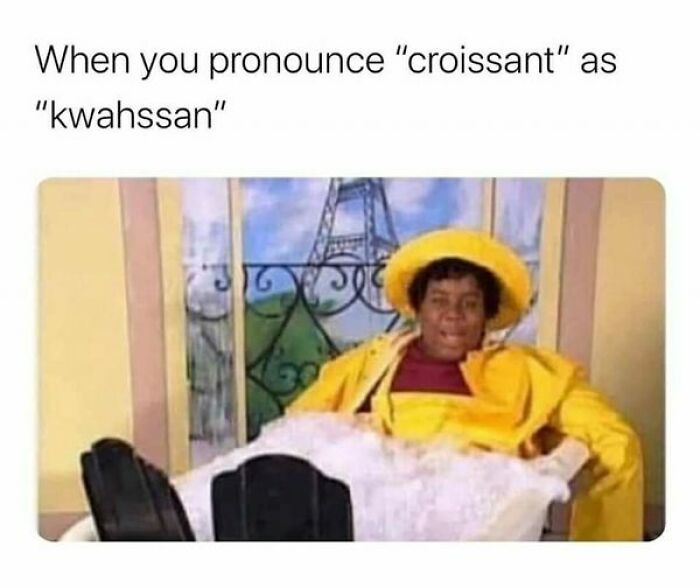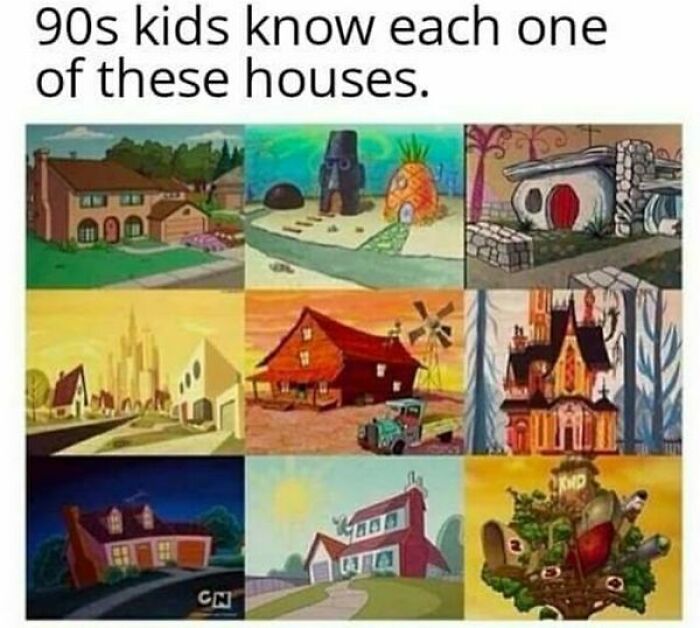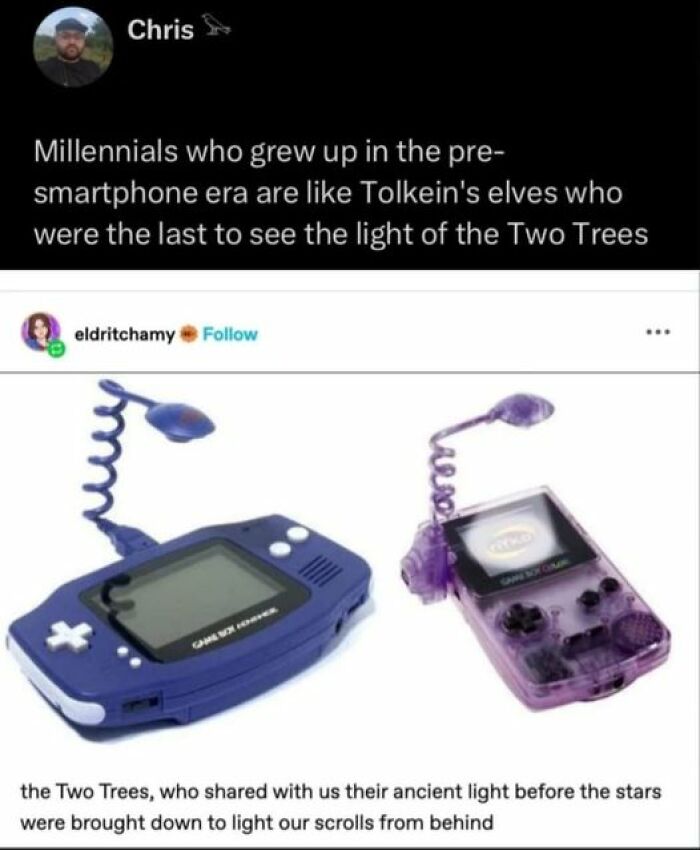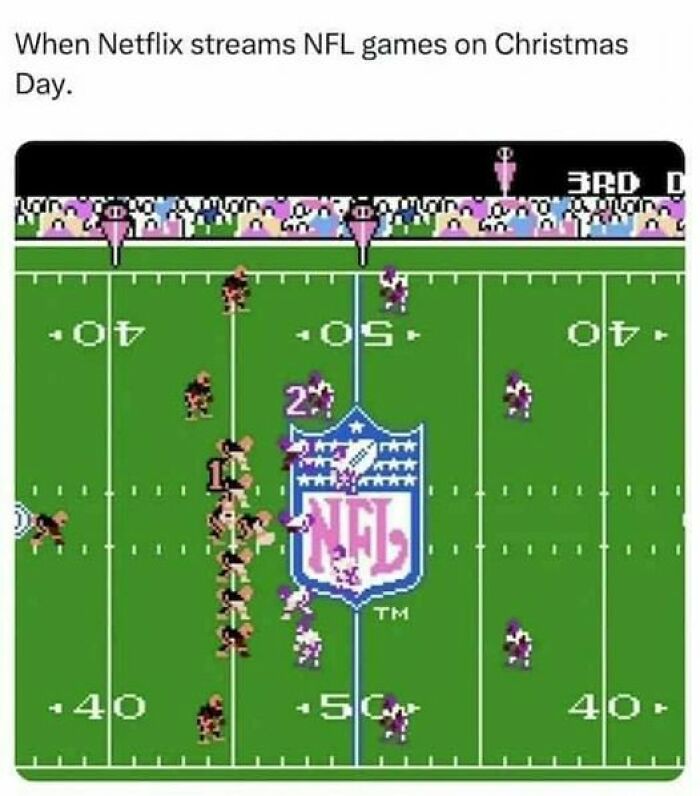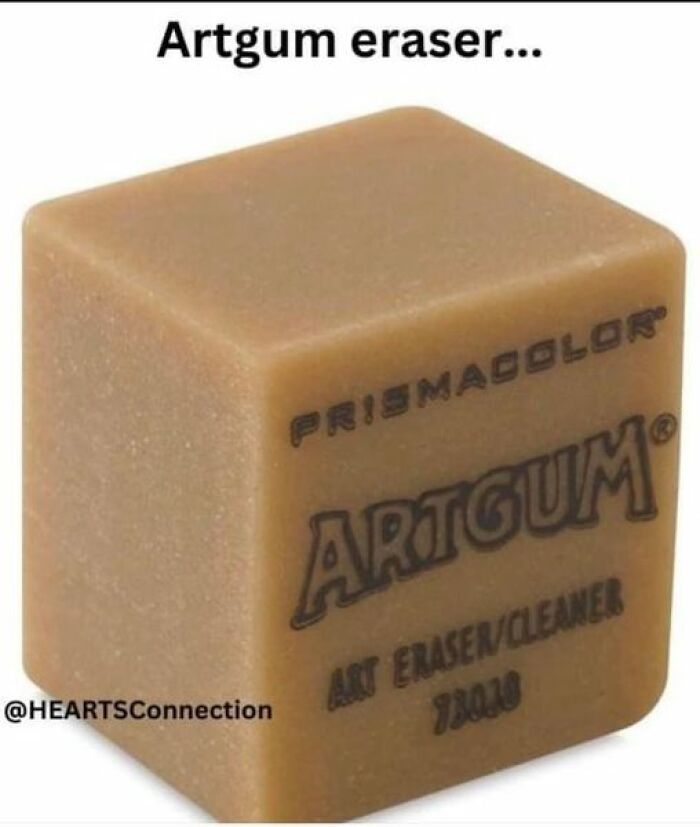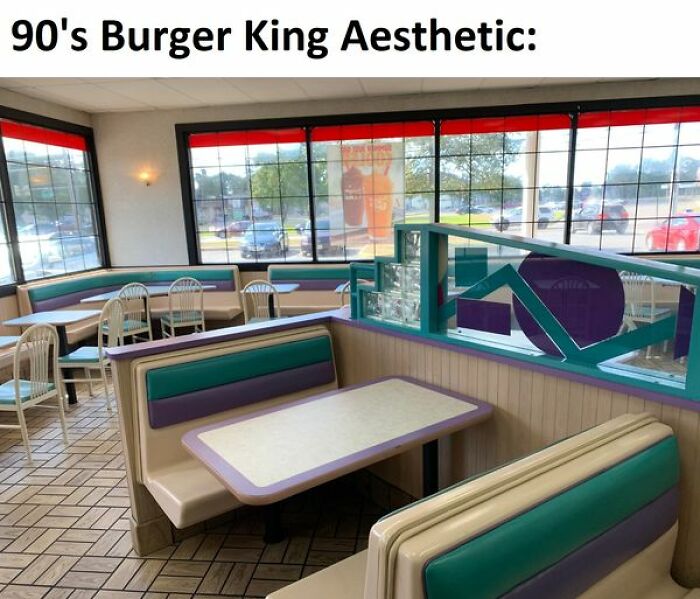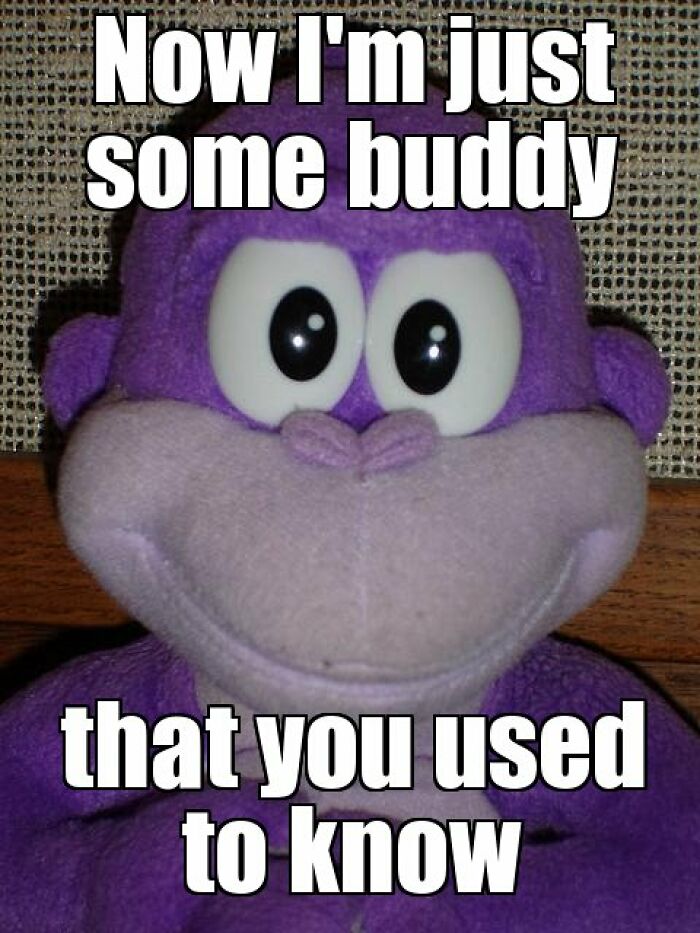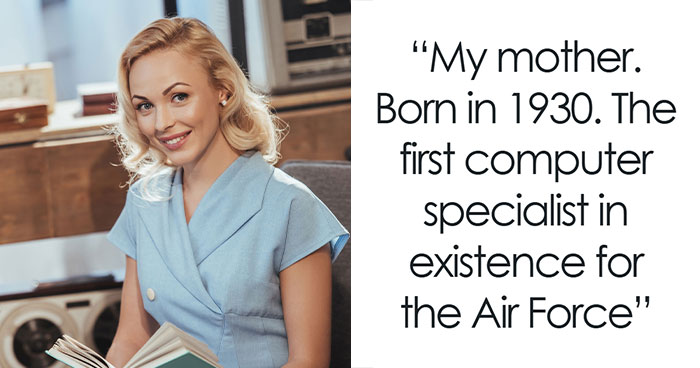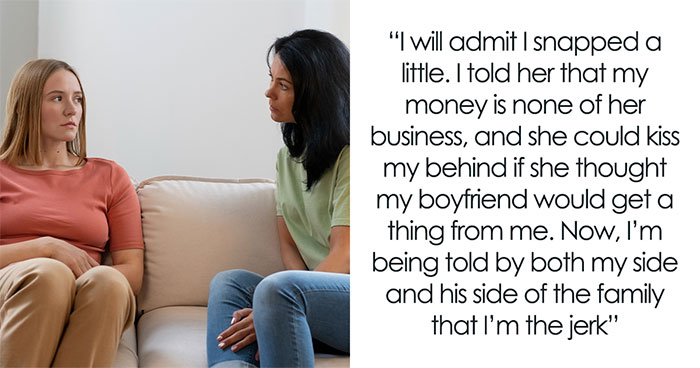The '90s are like a friend you haven't seen in years—still close enough to feel familiar but distant enough that details about the memories have started to blur. So let's refresh them.
The Facebook page 'The Nostalgic 90's' is perfect for this task—it regularly shares memes that instantly take you back to the iconic decade. Whether we're talking about movies, music, gadgets, or toys, this corner of the internet has it all.
Continue scrolling to get your daily dose of feels, and don't miss our chat with Dr. Hal McDonald—you'll find it between the images.
More info: Facebook
This post may include affiliate links.
I still watch some of these from time to time just to relive the memories. Also, Brendan is awesome.
To learn more about nostalgia, we got in touch with Hal McDonald, Ph.D., a professor of literature and linguistics at Mars Hill University and author of The Anatomists.
"Literally any stimulus that enters our brain through any of our five senses can trigger nostalgia, from the smell of wood smoke on a crisp autumn afternoon, to the orange gritty taste of children’s Motrin, to the sound of a rusty spring on an old screen door, to the sight of a certain shade of purple on a Christmas tree ornament, to the feel of sun-warmed deck-boards under your bare feet," McDonald told Bored Panda.
If Bluey isnt the best parenting guide in the world i don't know what is. Who needs expensive advice when you have cartoon dogs?
None of this is an accident. "Any smell, taste, sound, sight, or feeling that finds a match in some isolated bit of sensory data stored in our brains can set into motion a cascade of neural activation that we experience in our conscious awareness as a full-blown multi-sensory autobiographical memory," McDonald said.
"Along with this memory comes the reactivation of whatever emotions we felt when we lived the remembered experience. The memory of an experience that stirred pleasurable emotions in the past will reactivate similar pleasurable emotions in the present (i.e. nostalgia)."
"While it is true that any sensory stimulus is capable of triggering a nostalgic response in our brain, certain stimuli are particularly potent triggers," McDonald said. "As our common experience attests, our sense of smell is quite frequently a trigger of nostalgia.
"Because of the close proximity of the olfactory bulb—the part of our brain that processes information about smell—and the hippocampus—the part of our brain responsible for processing short- and long-term memory—smells from our environment are very readily processed as part of our autobiographical memories, and, in turn, very readily trigger memories in which similar smells are involved."
This, according to McDonald, is why something like jogging past a yard in which someone has used their shredded Christmas tree as mulch, and catching a pungent whiff of Frasier fir in the air—as he did on a hot day in the middle of last summer—can instantly transport us back to a Christmas Eve from our childhoods, when we were hanging stockings in front of a flickering fireplace as snow fell outside.
Another reliable trigger of nostalgia, according to the professor, is music.
"Because so many different parts of our brain are involved in the experience of listening to a song, and so much emotion is wrapped up in that experience, hearing a song from our past—particularly if it is unexpected—can instantaneously transport us back to the time in our lives when it was popular, triggering all those same powerful emotions we felt all those years ago."
One of the markers for nostalgia is the strong sales of toys tied to beloved childhood franchises. In 2023, US adults made up 17.3% of toy sales, totaling $6.7 billion, while in Europe, adults over 18 contributed 2.6 billion euros ($2.76 billion) in sales. Popular releases like the Barbie movie and Star Wars series have boosted related merchandise sales, with adults now representing up to 25% of the sales of some brands. Additionally, 43% of US adults reported buying toys for themselves in early 2024, showing how nostalgia continues to drive this growing market.
However, nostalgia often seems to inspire both positive and negative emotions. Professor McDonald said, "The characteristic 'bittersweet' feeling of nostalgia is built into the very nature of the experience."
According to him, the emotion "is 'sweet' because it allows us to mentally re-experience a happy time in our past lives [and] it is 'bitter' because, along with feeling the pleasure of the remembered experience once again, we are simultaneously aware that the experience exists only in our memory, since the remembered moment itself is relegated to a past that will never come again because it is, after all, the past."
"We take pleasure in the memory while lamenting the permanent loss of the thing we remember," he said.
In the end, however, McDonald believes that, despite the hints of bitterness, we’re still better off embracing—rather than avoiding—nostalgia.
"A large and growing body of research from both psychology and neuroscience conducted over the last couple of decades has identified a number of wellness benefits that accompany the experience of nostalgia, from emotion regulation to alleviation of loneliness, to mitigation of existential dread, to increased creativity and openness to experience," he explained.
"Even without such clinically measurable 'wellness benefits,' nostalgia feels good, and it's free—the ultimate cheap pleasure."
I definitely had one of these. You had to be careful about rough roads because the CD would skip if you hit a bump.
I watched this for the first time last weekend, and I have to say, I think I agree with this one.
I love the movie Big Daddy. Actually my cousin and I have this thing, where I'll just ask him to say it and he knows I'm asking him to quote a certain part of this movie. He's great at talking just like Rob Schneider's character, the part when he is trying to read flashcards to practice his English. Specifically the "hip, hip hop, hip hop anonymous, damn you give him all the easy ones!" 🤣
I wish they still made Vans skateboarding shoes. I wore them all through junior high and high school and they were the most comfortable shoes I ever wore.
Come on. We wore bell bottom jeans in the late 60s and early 70s. And yes, having wet bottoms was always the case when it would rain.
98° tried to enter as a third party, but was never able to make it that far.
My house, after I tried to build a basement in a property that was 50 metres from the coast and only 2 metres above sea level.
There are these bird toys these days that do the same thing, but the playback is a higher pitch. They are so annoying!
For $2.00 today you can get a McBread. Two slices of bread and nothing in-between.
I tell people my life started as a Hallmark movie, but it's ending up like a Lifetime movie..
Is this from 'King of the Hill' ? Love that programme but don't remember this scene
Memo to BP. There *are* actually other decades than the 90s if you want to explore those too. It seems you have a fixation with them.
Additionally, how about researching the time frame better and not including things that existed for kids 20 or more years prior to 1990?
Load More Replies...For some reason she's never shown up on these lists. I went to buy a replacement for the Daria series on dvd recently because at least two discs are scratched and the one store that was still selling it where I live has been out of stock for months :(
Load More Replies...Very US-centric. Born 1980 and didn't recognise most of these.
I was born 85 in the UK and recognise most altho I know we do get a lot of what they get so that may be it, assuming you're Aussie goin by your name
Load More Replies...I have to pay for premium just to finish an article now? BP must really think they're actually providing some quality content
Been a minute since I been on bored panda , they losing so much money they force people to pay to finish the list now ??? Oooof get your screen grabs now kids I give them another year maybe 2
Memo to BP. There *are* actually other decades than the 90s if you want to explore those too. It seems you have a fixation with them.
Additionally, how about researching the time frame better and not including things that existed for kids 20 or more years prior to 1990?
Load More Replies...For some reason she's never shown up on these lists. I went to buy a replacement for the Daria series on dvd recently because at least two discs are scratched and the one store that was still selling it where I live has been out of stock for months :(
Load More Replies...Very US-centric. Born 1980 and didn't recognise most of these.
I was born 85 in the UK and recognise most altho I know we do get a lot of what they get so that may be it, assuming you're Aussie goin by your name
Load More Replies...I have to pay for premium just to finish an article now? BP must really think they're actually providing some quality content
Been a minute since I been on bored panda , they losing so much money they force people to pay to finish the list now ??? Oooof get your screen grabs now kids I give them another year maybe 2

 Dark Mode
Dark Mode 

 No fees, cancel anytime
No fees, cancel anytime 






